-
'US tells Russia crimes it commits are acceptable' — What recognition of Russia's occupation of Crimea would mean for Ukrainians, Crimean Tatars
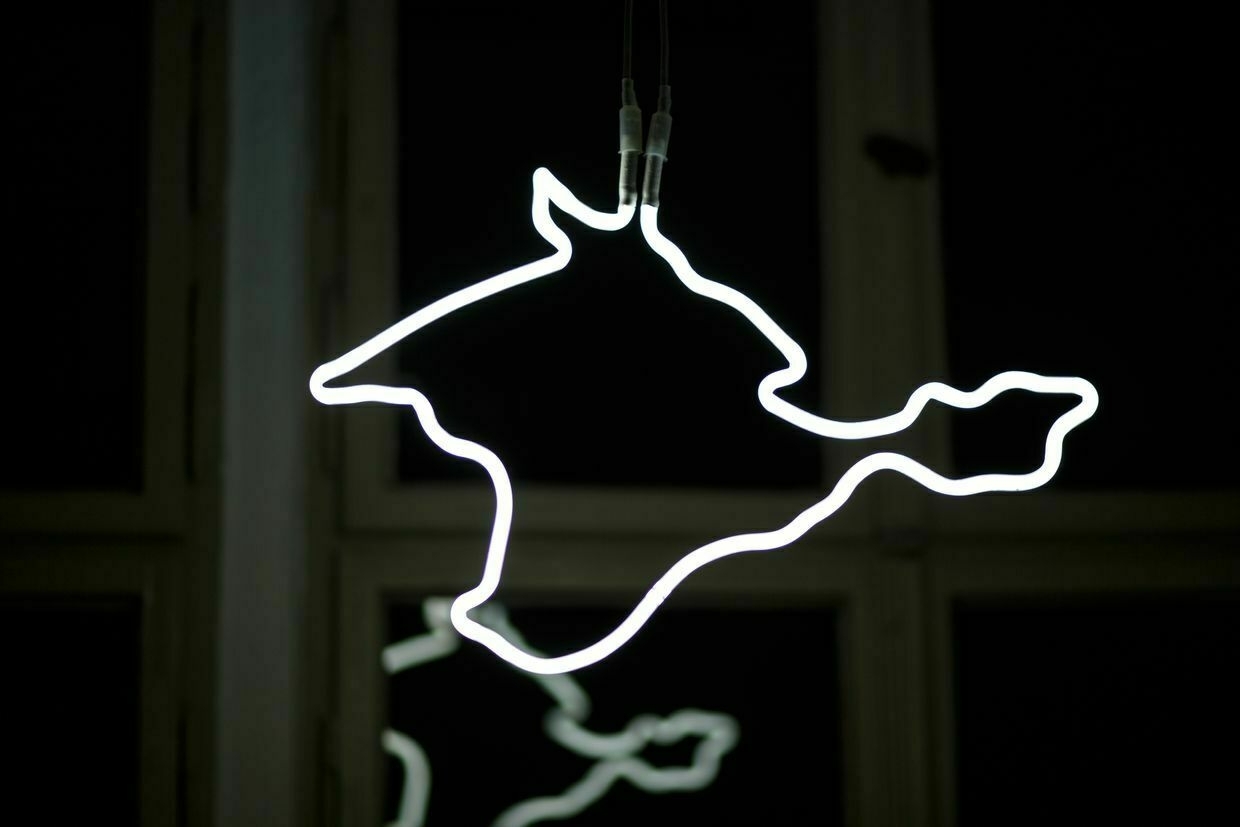
The U.S. is reportedly considering officially recognizing Russian control over occupied Crimea as part of a potential peace agreement — a territorial concession that would kill the existing world order and is deemed unacceptable by Ukraine.
According to Axios, the Trump administration’s final proposal for ending Russia’s all-out war against Ukraine included U.S. de jure recognition of Moscow’s control over Crimea, along with de facto recognition of its partial occupation of other Ukrainian regions — Luhansk, Donetsk, Kherson, and Zaporizhzhia.
U.S. President Donald Trump said on April 23 that Washington is not forcing Ukraine to recognize Crimea as Russian. He then followed by accusing Ukraine of not fighting for the peninsula Russia occupies.
“Nobody is asking (President Volodymyr) Zelensky to recognize Crimea as Russian territory, but if he wants Crimea, why didn’t they fight for it 11 years ago when it was handed over to Russia without a shot being fired?” Trump wrote on Truth Social.
Russia’s war against Ukraine began in Crimea in 2014. Since then, Moscow has been actively reshaping the peninsula’s ethnic composition, bringing nearly a million Russians into the occupied area and forcing Ukrainians and Crimean Tatars, indigenous people of the peninsula, out and persecuting those who stayed.
The peninsula was turned into a military base, and in 2022, Russia used occupied Crimea as a staging ground for its full-scale invasion of Ukraine.
The possible U.S. recognition of Russian control over the occupied peninsula would mark an unprecedented step, effectively allowing Moscow to avoid accountability and signal that borders are to be redrawn by force.
For many Ukrainians and Crimean Tatars it would mean, in turn, that they would never be able to return home.
The Kyiv Independent asked Ukrainians and Crimean Tatars to share their stories about Crimea and what would it mean for them if the U.S. would acknowledge and support Russia’s annexation of their homeland.
Alim Aliev, 36, Ukrainian human rights activist, journalist, founder of the Crimean Fig project
For me, Crimea is not just a territory. It is not the sea, mountains, beautiful landscapes, or delicious food. Above all, Crimea is my home. And I haven’t been home for 11 years. My entire childhood was spent in Crimea — my earliest memories, my first victories, my first defeats — all of it happened there. Crimea is what shaped me.
This won’t change much for me personally. Because for me, Crimea remains clearly under occupation, where my people — Crimean Tatars and Ukrainian activists — are constantly and systematically repressed. And it’s a place I simply cannot return to right now. People like me are labeled as ‘extremists,’ ‘terrorists,’ and so on.
That’s why, over the past 11 years, there has been and still is continuous resistance on the peninsula. But beyond that, many Crimean residents, Crimean Tatars, are serving in various units of Ukraine’s Armed Forces, united by a single goal — to return home.
If Trump recognizes Crimea, the biggest losers are Ukraine — and the US, experts sayFormally recognizing Crimea as Russian would breach international law and potentially open the door to further global conflicts, experts warn.The Kyiv IndependentNatalia Yermak
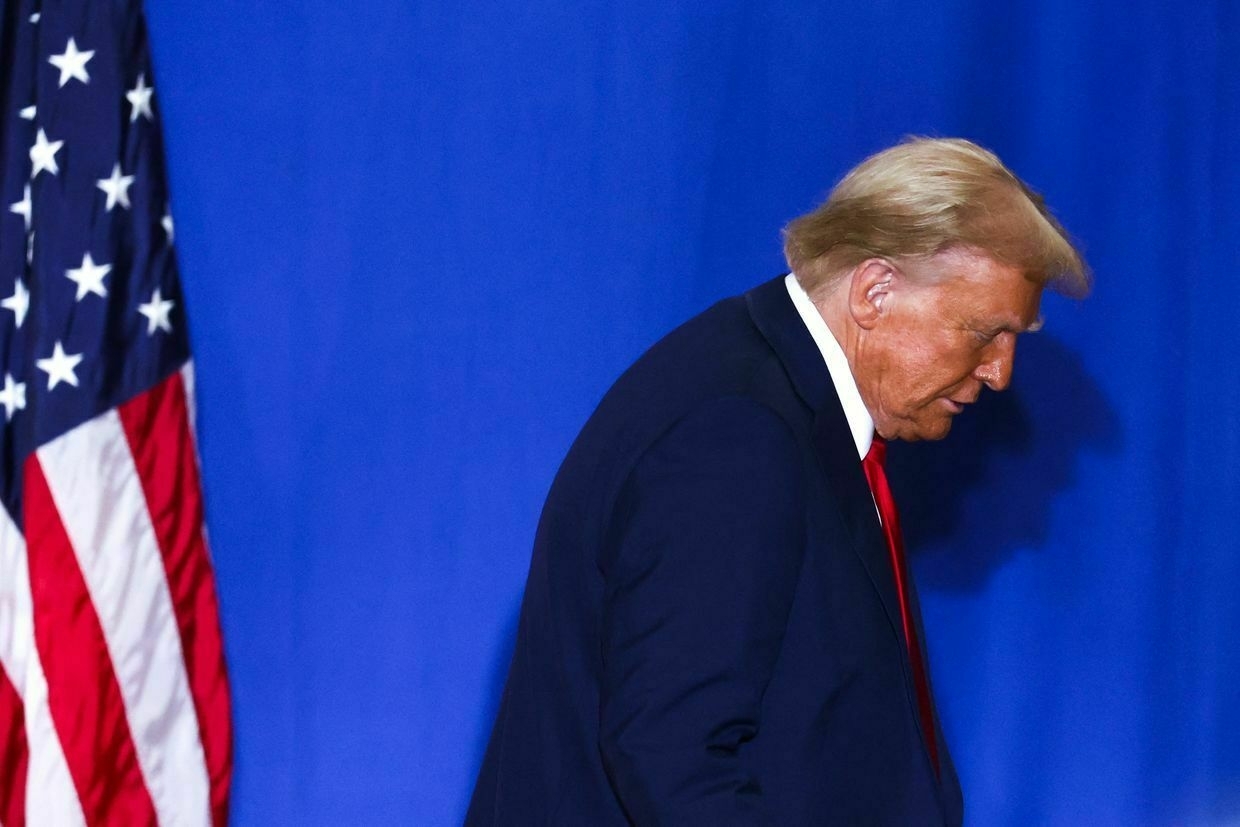
Crimean Tatar artist, 32, whose family remains on the peninsula
(Anonymous for security reasons)
Recognizing the occupation as legitimate is a turning point.
A precedent where force overshadows law. It is a tacit agreement that you can just come and take what is not yours.
A world in which the door opens for those who redraw borders by force, and borders become temporary agreements. Where silence is interpreted as agreement.
This is not just about Crimea. This is about everyone. Legitimizing the seizure is legalizing lawlessness. And from this moment on, chaos is no longer an anomaly — it is the norm.
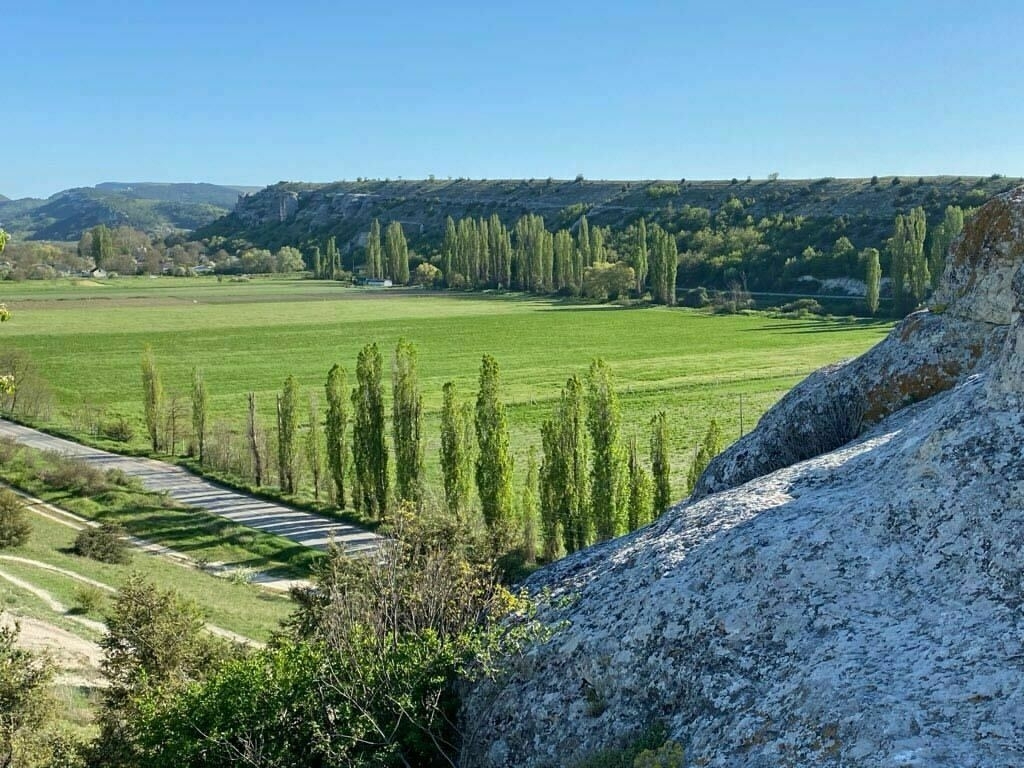
A view of the meadow near the Belbek River in Russian-occupied Crimea, Ukraine, in 2021. (Courtesy) A resident based in occupied Crimea, 38
(Anonymous for security reasons)
I regard all his (Trump’s) statements as empty chatter now. He plays on the news and loud statements, that’s all, so I don’t take any such news seriously at all.
Lia Gazı, 23, Crimean Tatar activist in exile
I was born in Crimea, and only now do I truly understand what a privilege that was. Generations of my family fought for the right to live on their native land, enduring exile, surviving the harsh return from Uzbekistan (following the Soviet deportation of Crimean Tatars from Crimea), and rebuilding their lives from scratch… all so that I could be born in Crimea.
I spent the happiest years of my childhood there. That precious time came to an abrupt end with the Russian occupation. For us, Crimea is not just a seaside or a vacation spot. It is our homeland, the one place where we truly belong, where every hill, every street, every scent holds a memory.
One of my warmest memories is of the days when our relatives from Uzbekistan came to visit their homeland. We used to travel often, and only now do I realize that I may never again see the Khan’s Palace in Bakhchisarai the way I remember it from my childhood, because Russia is destroying it. One of the most important symbols of Crimean Tatar history is being erased before our eyes.
As a Crimean Tatar, as someone whose homeland is Crimea, whose ancestors lived and died on that land, the very thought of the U.S. recognizing Russia’s occupation is devastating. I am the fifth generation of my family that has not been able to live freely in Crimea. To me, such recognition would feel like a personal betrayal. It would mean that the hope I’ve carried in my heart all these years, the hope of returning home, is slowly being extinguished.
I have lived in exile believing that one day, justice would prevail and Crimea would be free again. But now, the idea that powerful nations are even considering legitimizing this occupation fills me with profound disappointment, sorrow, and a sense of abandonment.
From the very beginning, the international response to the occupation of Crimea has been too weak. But never did I imagine that we would reach a point where the discussion would shift from how to liberate Crimea to how to normalize its annexation.
For Crimean Tatars, this would be more than just a political decision, it would be a death sentence for our national identity. It would signal to the world that the disappearance of our people, our language, our culture, and our history is acceptable.
The world’s acceptance of Russia’s control over Crimea would mean accepting that the Crimean Tatars, the indigenous people of the peninsula, may cease to exist as a distinct nation.
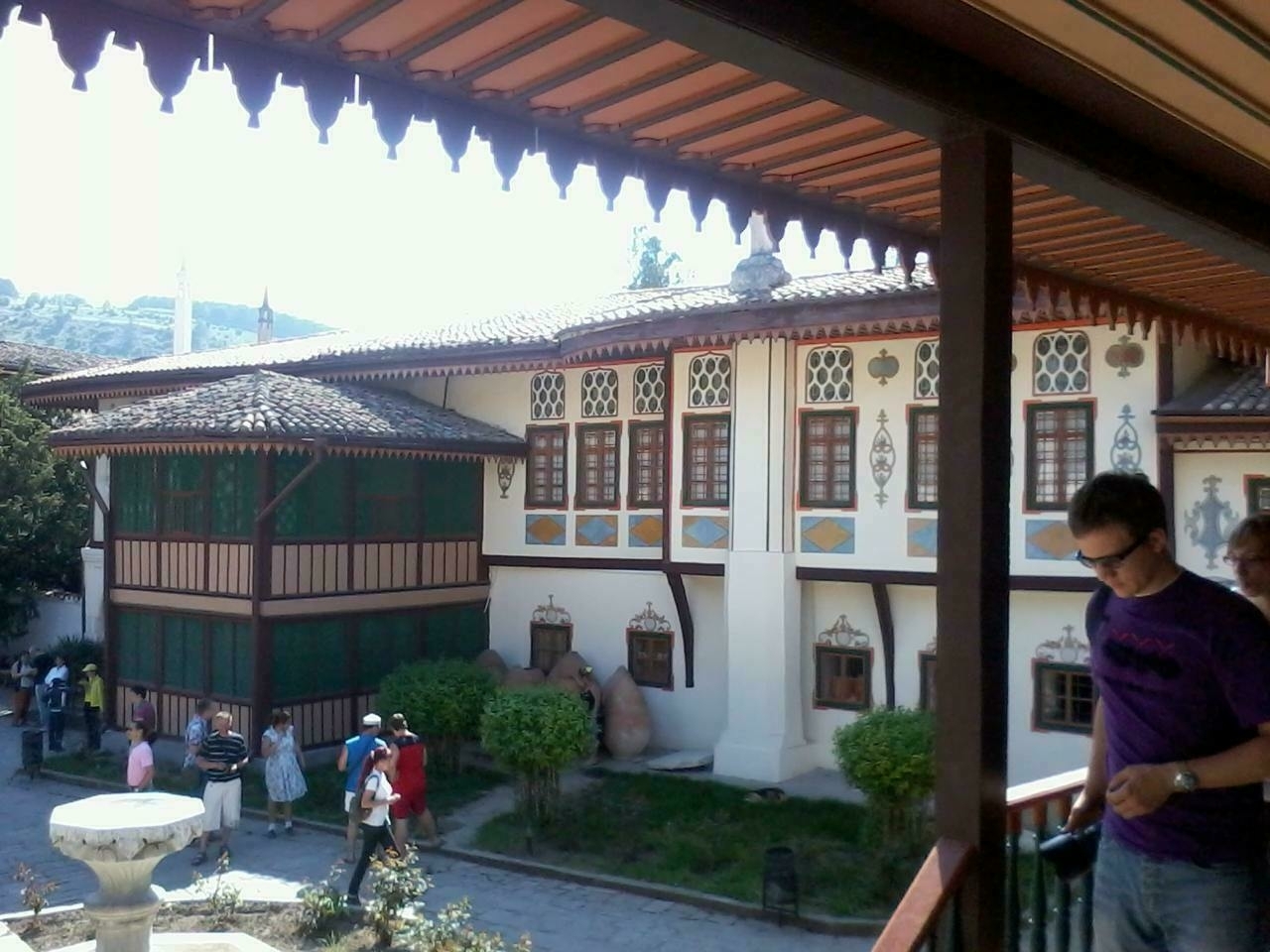
A photo taken before Russia’s invasion of Crimea between 2012–2013 shows the Khan’s Palace in the city of Bakhchysarai, Ukraine. (Lia Ğazı/Archive) Kyiv-based student, 21, whose family remains on the peninsula
(Anonymous for security reasons)
“Crimea was the place where my brother and I spent our childhood. We lived there from time to time and, received treatment, and then returned to the mainland. The memories are warm: figs in our own garden, Karaite family friends, hikes in the mountains to the old Krymchak cemeteries. Throughout our childhood, we were prepared for the idea that we would study and live there, and in 2013, we planned to move there permanently.
The legitimization of Russia’s occupation by the U.S. is perceived in the same way as much of what we are hearing from Trump and his team: quite absurd but also scary because it could be done. If the United States decides to take such a step, other countries that are politically and economically dependent on it may follow.
There are indeed pro-Ukrainian residents in Crimea who believe that Ukraine will return.
Tamila Tasheva, 39, Ukrainian lawmaker, president’s former permanent representative for Crimea
Crimea is not just geography, it is not just a territory. It is the place where my family comes from, the place that holds the history of my people. It is the place where my identity was shaped and where my civic activism began. Because of the 1944 deportation, I was born in Samarkand, Uzbekistan, but Crimea has always remained in my heart as a point of return and deep connection.
My personal memories of Crimea include warm evenings there and stories of the 1944 deportation experienced by my loved ones. It also includes the first public demonstrations in support of Crimeans and Ukraine in Crimea, as well as the first impactful civic initiatives.
Since the occupation of Crimea, I have not been able to return home for over 11 years. Sadly, I am not alone. Many Ukrainian citizens, activists, and representatives of the Crimean Tatar people are, for various reasons, barred from returning home. Yet, despite this, Crimea remains a point of internal connection, hope, and resistance.
The idea of possible U.S. recognition of Russia’s occupation of Crimea is absolutely unacceptable. Legally, it contradicts Ukraine’s Constitution, which clearly defines Crimea as part of our sovereign territory. Politically, it would mean surrendering to evil and legitimizing the results of illegal, unprovoked aggression. And personally, it would be yet another attempt to erase my identity, my family’s history, and the struggle of thousands who have fought — and continue to fight — for a free Crimea.
For Crimeans, such a stance is not just a betrayal. It signals that their pain, repression, deportations, arrests, and humiliation supposedly do not matter. It would imply that those who resisted the occupation, who refused to collaborate with the occupiers, who ended up imprisoned — did it all for nothing. But that is not true. It is precisely because of them that Crimea remains Ukrainian — politically, culturally, in the hearts of millions.
Ukraine does not trade its people nor its land. Crimea cannot be a ‘bargaining chip.’ Anyone who thinks that recognizing Crimea as Russian would end the war is gravely mistaken. It would create a precedent that aggression and occupation are acceptable. Ukraine will not allow that.
Liza Sivets, 31, working in the public history field
I was very lucky to be born in Crimea and live there for 20 years, until 2014, so all my childhood and carefree youth are associated with the peninsula. I grew up by the sea, in a place with the most beautiful sunsets. I traveled all over Crimea with my family, school travel group, and university friends. This region is extremely rich in history, including tragic and little-talked-about history, and this influenced what I chose to do as my work.
But Crimea is not just memories for me. These are people whom Russia imprisoned or forced to leave their homes because of their beliefs. These are the people who still live there, under occupation and propaganda, and force themselves to remain silent so that this Russian repressive machine does not hit their families as well.
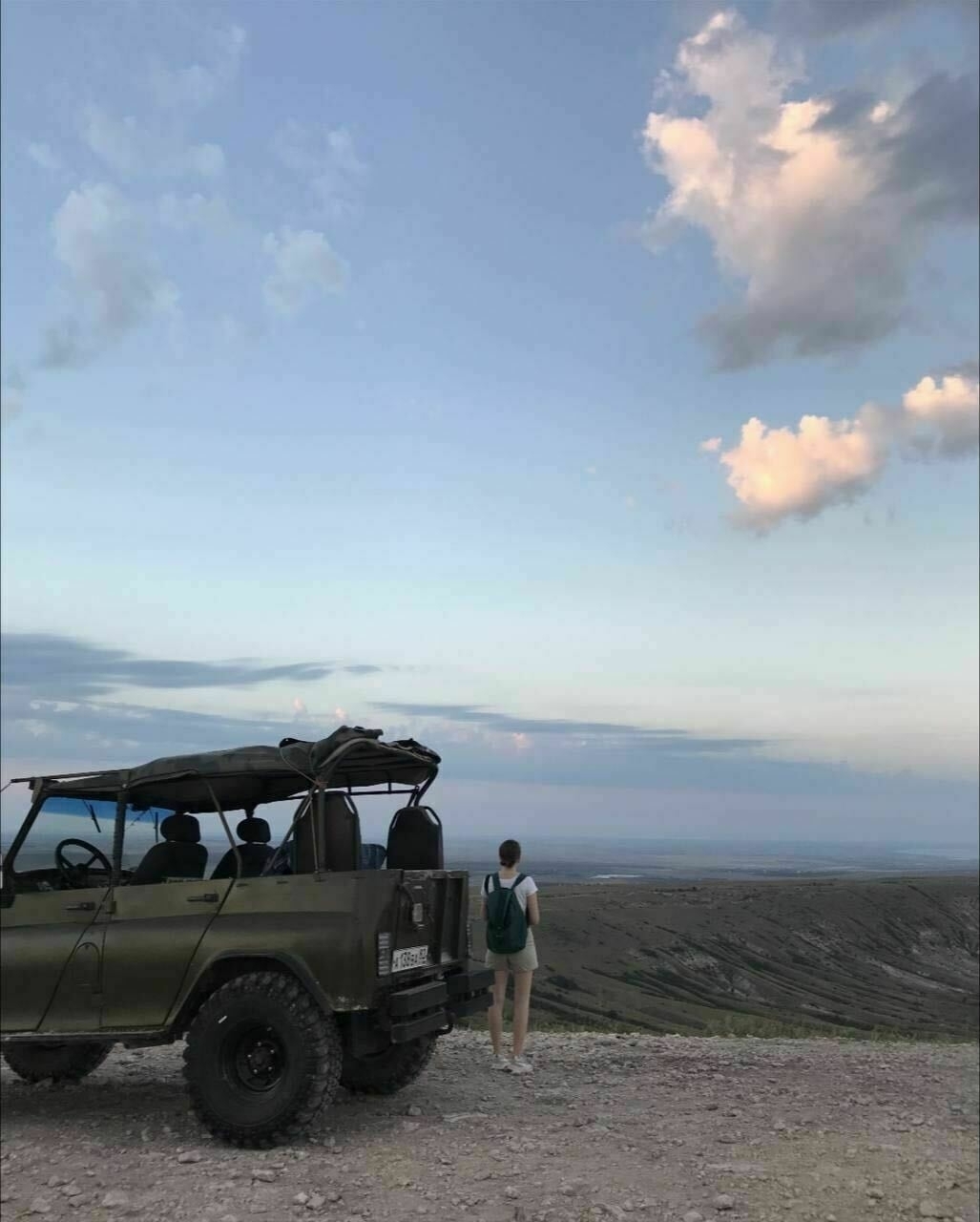
Liza Sivets posing for a photo taken after 2014 near the Starfall of Memories viewing platform not far from the town of Koktebel in Crimea, Ukraine. (Courtesy) I see it as a defeat of American democracy and a confirmation that the U.S. is aligning itself with Russia. Overall, I am disappointed but not surprised. If this recognition happens, me and other residents of Crimea will feel even more betrayed and hopeless.
Thousands of internally displaced people and refugees are unlikely to be able to return home, see their loved ones, or visit their family graves. And people in Crimea, who are waiting for justice and Ukraine’s return, will suffer even more repression from Russia.
In fact, by this recognition, the United States is telling Russia that the crimes it commits are acceptable, that it will not be punished, and that it can continue. If Trump is so eager to please (Vladimir) Putin, he might as well hand over one of the American states to Russia.
Khrystyna Burdym, 35, culture and art worker, the Crimea exhibition curator
Unfortunately, my memories are still very childish. The last time I was in Crimea was when I was about 10 years old.
For me, Crimea is, first and foremost, an image of carefree days. I associate it with nature, with my family, with the people with whom we traveled there on vacation, and with friends who lived on the peninsula before it was occupied.
Crimea is also about health, Crimean Tatar cuisine, and happy parents.
Unfortunately, at the time, I didn’t fully grasp the depth, uniqueness, and significance of the peninsula. I knew far less about it than I would have liked — its history, culture, and the Crimean Tatars. It was still the 2000s, and back then, Crimea wasn’t as visible or widely discussed as it is today.

Khrystyna Burdym (L) and her mother are swimming in the Black Sea in Yevpatoria, Crimea, Ukraine, before 2000. (Courtesy) But thanks to the exhibition we organized for the Crimean Platform, it felt like I returned those memories, while also hearing an incredible number of stories from artists, from those who were born in Crimea.
This statement (about the U.S.’s possible recognition of Russian control over Crimea) has been in the air for a long time. But until recently, I hoped that a country with such influence and weight would not say it out loud.
Of course, such things are unsettling. They are troubling. But I hope that for Ukrainians, as well as for everyone who supports us around the world, this will be nothing more than a temporary shock after which we will return to the fight even more resolutely.
Putting aside geopolitics, what hurts me the most right now is what’s happening with my friends, those who are from Crimea. They have been unable to return home since 2014. Some of them have not seen their families for years. This is unfair. It is painful.
And I want to make it clear once again: this occupation is temporary. I believe in it. As I think most Ukrainians do. And many people in the world do, too.
Crimean Tatar artist, 40
(Anonymous for security reasons)
Me and my family in Crimea have a negative attitude toward Trump’s potential recognition of Crimea as Russian. It’s not even a topic of discussion in my family circles. For them, it’s unacceptable when people say that Crimea will never return to Ukraine.
If Crimea becomes Russian, I can only imagine the repression and added pressure that would fall on those with a Crimean Tatar identity or views that are not tolerant of Russia.
There’s also a specific problem for representatives of the Crimean Tatar community who have to hide their names because it poses a threat to their relatives in Crimea. Even soldiers fighting for Ukraine, when they are buried, are not always publicly named. For us, anything that requires publicity is restricted.
A close relative of mine, a retiree (from Crimea), said: ‘That’s impossible, they won’t recognize it — the people of Ukraine do not support this. Sooner or later, Crimea will return to Ukraine.'
-
Kremlin spokesperson reiterates demands for Ukraine to give up territory in exchange for end to war
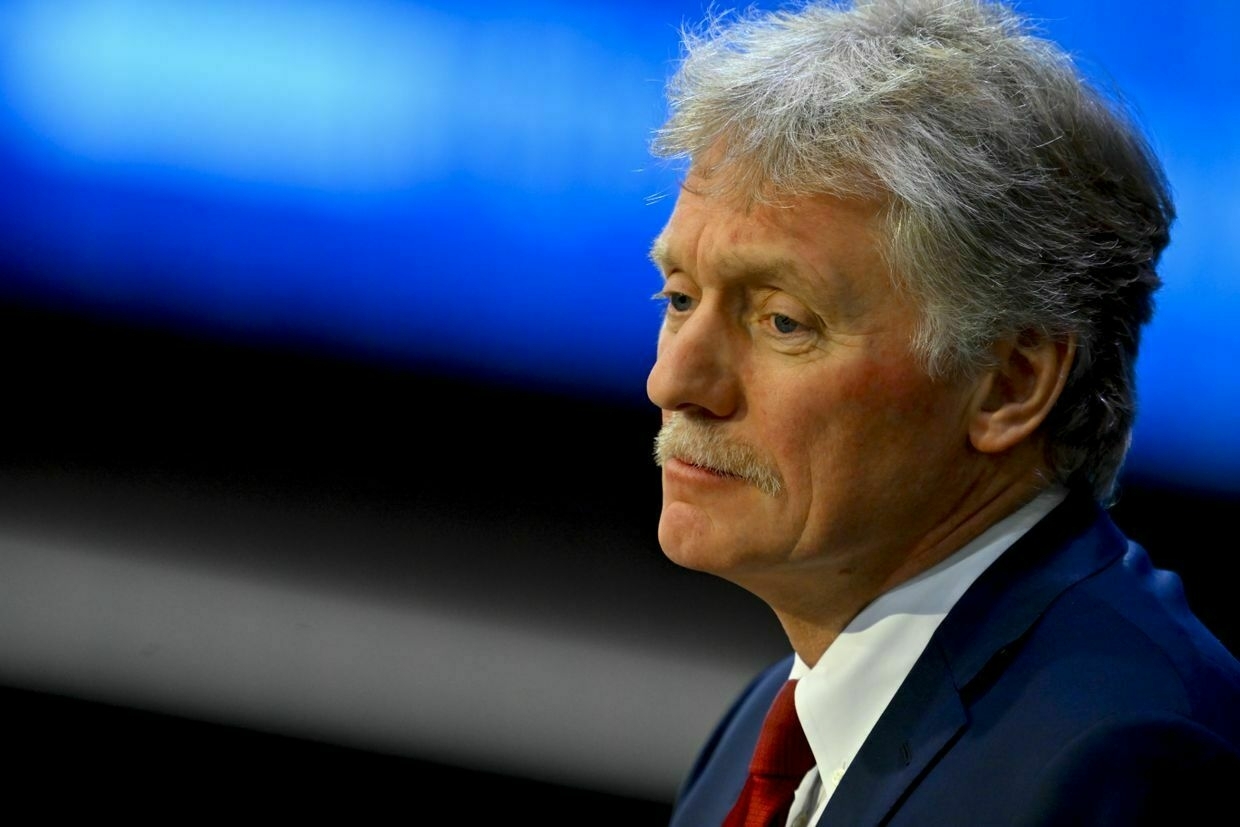
The war in Ukraine would end “instantly” if Kyiv agreed to withdraw from territory it currently controls and abandon its NATO ambitions, Kremlin spokesperson Dmitry Peskov said in an interview with the French outlet Le Point on April 23, reiterating conditions that Ukraine and its allies have repeatedly rejected.
Peskov laid out Moscow’s demands for a ceasefire, including the full recognition of Russia’s claim over four Ukrainian oblasts it partially occupies, Donetsk, Luhansk, Kherson, and Zaporizhzhia, neutral status for Ukraine, and an end to all Western military support.
“If Ukraine lays down its arms and withdraws from these regions, military operations will stop instantly,” Peskov said. “These four regions are inscribed in our constitution as an integral part of Russia."
The Kremlin illegally annexed the four territories following sham referenda in late 2022, including the Ukrainian oblasts as part of Russia in the constitution — in a move that holds no weight internationally.
Although Moscow has declared all four oblasts and the Crimean Peninsula as part of Russia, it does not fully control them. Russia currently occupies about 20% of Ukraine’s territory, including nearly all of Luhansk Oblast, two-thirds of Donetsk, and approximately 73% of both Zaporizhzhia and Kherson, as well as the entirety of Crimea, which it illegally annexed in 2014.
Peskov also rejected the legitimacy of the so-called “coalition of the willing,” a group of 31 nations that has pledged to send peacekeeping forces and offer security guarantees to Ukraine in the event of a peace agreement.
“Whether this coalition exists before or after the signing of an agreement is a detail for us,” he said. “The most important thing is the location of these soldiers.” Russia considers any deployment of foreign troops, particularly from NATO countries, a security risk, according to Peskov.
Asked whether Russia would consider further military expansion beyond Ukraine, Peskov dismissed the idea. He insisted Russia has “no problems or territorial claims” toward the Baltic or Nordic states. Russia also denied it was planning to invade Ukraine just before the start of its full-scale invasion in February 2022.
The Kremlin spokesperson also praised U.S. President Donald Trump as a “strong leader” willing to engage in dialogue, suggesting this differentiated him from the previous U.S. administration. “Putin appreciates strong men,” he said.
The Trump administration’s final proposal for ending the Russia-Ukraine war reportedly includes major concessions to Russia, including the U.S.’s de jure recognition of Russia’s control over Crimea, along with de facto recognition of its occupation of other Ukrainian territories, Axios reported on April 22, citing sources.
Ukraine’s leadership along with its European partners have firmly rejected any deal that concedes sovereign territory.
“This violates our Constitution. This is our territory, the territory of the people of Ukraine,” President Volodymyr Zelensky said on April 22.
Ukraine has no great options if Trump recognizes Crimea as RussianUkraine is facing a crossroads in its fight against Russia’s full-scale invasion, with the possibility of being forced to reject an unfavorable peace deal being imposed under huge pressure from the U.S. The red line for Kyiv could be a reported proposal from the White House that would giveThe Kyiv IndependentChris York
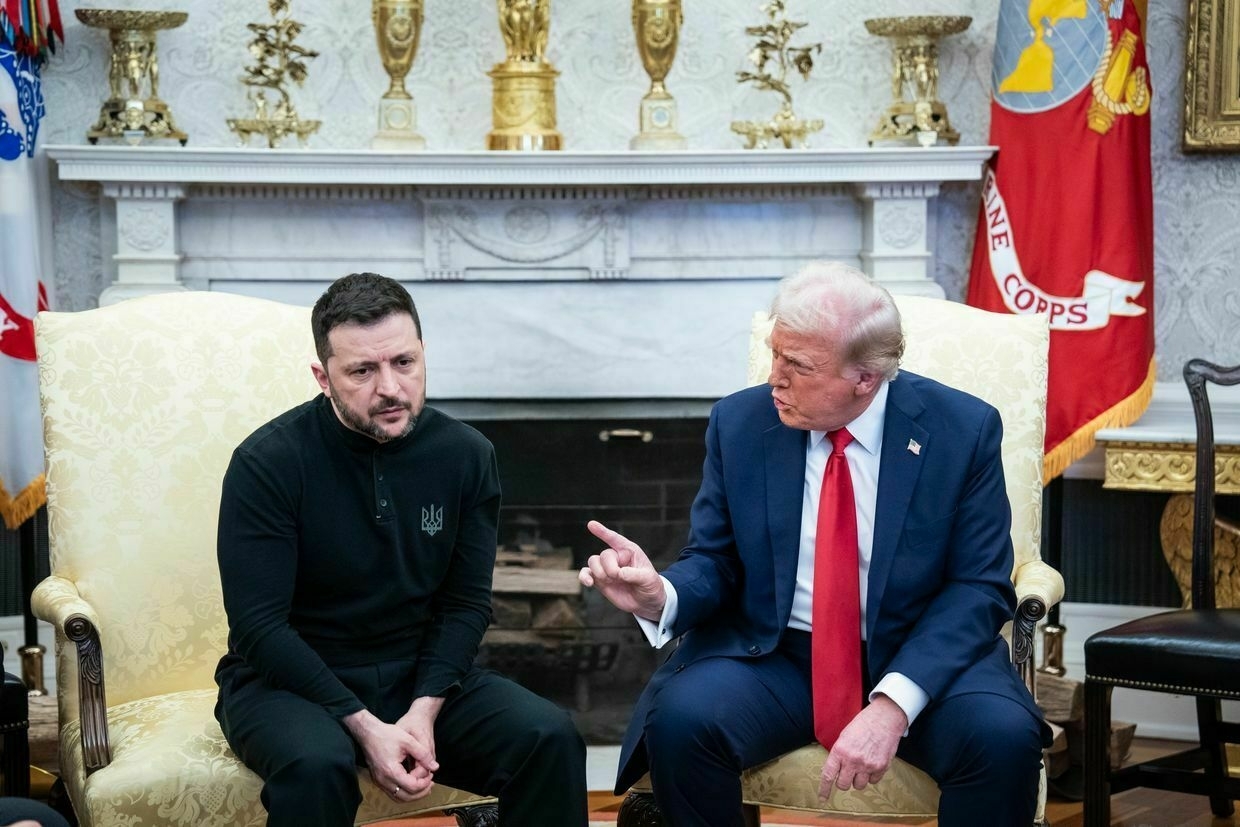
-
Ukraine Under Pressure as U.S. Pulls Back: Peace Talks Falter, Bombs Fall
-
Ukraine insists on unconditional ceasefire at London peace talks
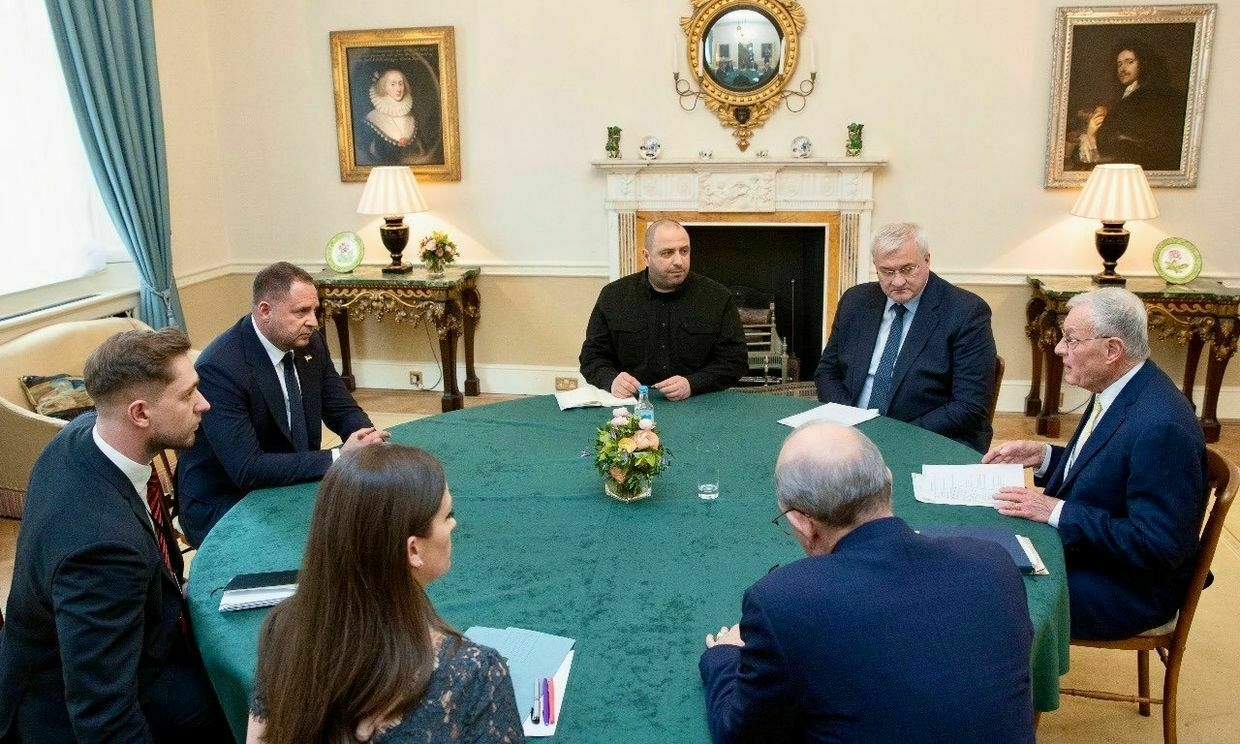
A Ukrainian delegation met with European officials and U.S. Special Envoy Keith Kellogg in London on April 23 to continue discussions on a possible path to peace, Ukraine’s Foreign Minister Andrii Sybiha said in a statement on X.
“During our meeting with U.S. Special Envoy General Keith Kellogg, we had a constructive exchange of views on the path to peace,” Sybiha wrote. “Ukraine wants the war to end more than anyone else in the world. We are committed to working together to achieve this goal."
The London meeting, originally intended as a ministerial-level summit involving the U.S., U.K., Germany, France, and Ukraine, was notably downgraded after U.S. Secretary of State Marco Rubio and U.S. Special Envoy Steve Witkoff declined to participate.
According to Reuters, Rubio pulled out after Ukraine submitted a document to European partners on April 22 declaring it would not enter talks on territorial issues until Russia agrees to a “full and unconditional ceasefire."
Following the meetings in London, Ukrainian Presidential Office head Andriy Yermak reiterated Kyiv’s position, saying, “An immediate, complete and unconditional ceasefire should be the first step towards the start of negotiations on achieving a just and lasting peace.”
Yermak also emphasized that Ukraine would defend its “principled positions,” which form the basis of its sovereignty and territorial integrity.
Despite the absence of Rubio and Witkoff, the U.K. Foreign Ministry said “significant progress was made on reaching a common position,” and that all parties reaffirmed support for U.S. President Donald Trump’s stated commitment to achieving a just and lasting peace.
The meeting followed a summit in Paris on April 17, where senior Trump administration officials outlined a controversial peace proposal to Ukrainian and European delegates.
The plan reportedly includes recognition of Russia’s 2014 annexation of Crimea and a ban on Ukraine’s NATO membership — two central demands by the Kremlin.
Trump’s reported ‘final’ peace plan includes accepting Russian occupation, few benefits for UkraineThe U.S. reportedly presented its peace proposal last week during a meeting with Ukrainian officials in Paris.The Kyiv IndependentKateryna Hodunova
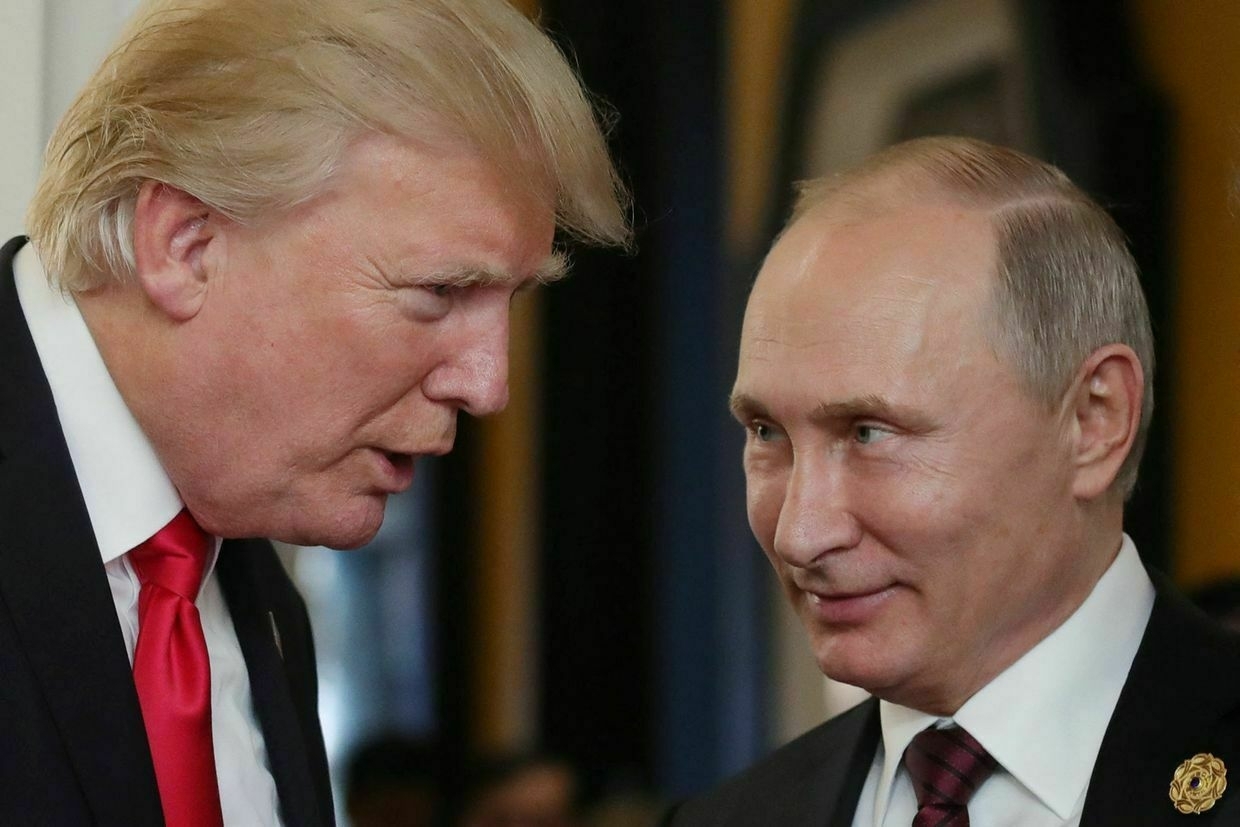
Ukraine’s leadership has firmly rejected any deal that concedes sovereign territory.
“This violates our Constitution. This is our territory, the territory of the people of Ukraine,” President Volodymyr Zelensky said on April 22.
The U.S. president denied that Ukraine is being pressured to accept the Crimea clause, writing on Truth Social: “Nobody is asking Zelensky to recognize Crimea as Russian Territory.”
Trump also argued that “even before the annexation of Crimea, major Russian submarine bases” were present there, and accused Zelensky of inflaming tensions with rhetoric that complicates peace efforts.
Despite Trump’s repeated claims of progress, Russia has rejected a U.S. proposal for a 30-day ceasefire and continues offensive operations. Putin declared a symbolic one-day Easter truce on April 19, which Ukraine reported was violated around 3,000 times.
Kyiv has separately proposed a 30-day ceasefire focused on halting long-range drone and missile strikes on civilian infrastructure, which the Kremlin has said it will “look into."
While Trump has repeatedly pledged to end the war swiftly and expressed frustration with Russia’s refusal to de-escalate, the U.S. president has yet to impose new sanctions or take punitive measures in response to Moscow’s ongoing invasion.
If Trump recognizes Crimea, the biggest losers are Ukraine — and the US, experts sayFormally recognizing Crimea as Russian would breach international law and potentially open the door to further global conflicts, experts warn.The Kyiv IndependentNatalia Yermak
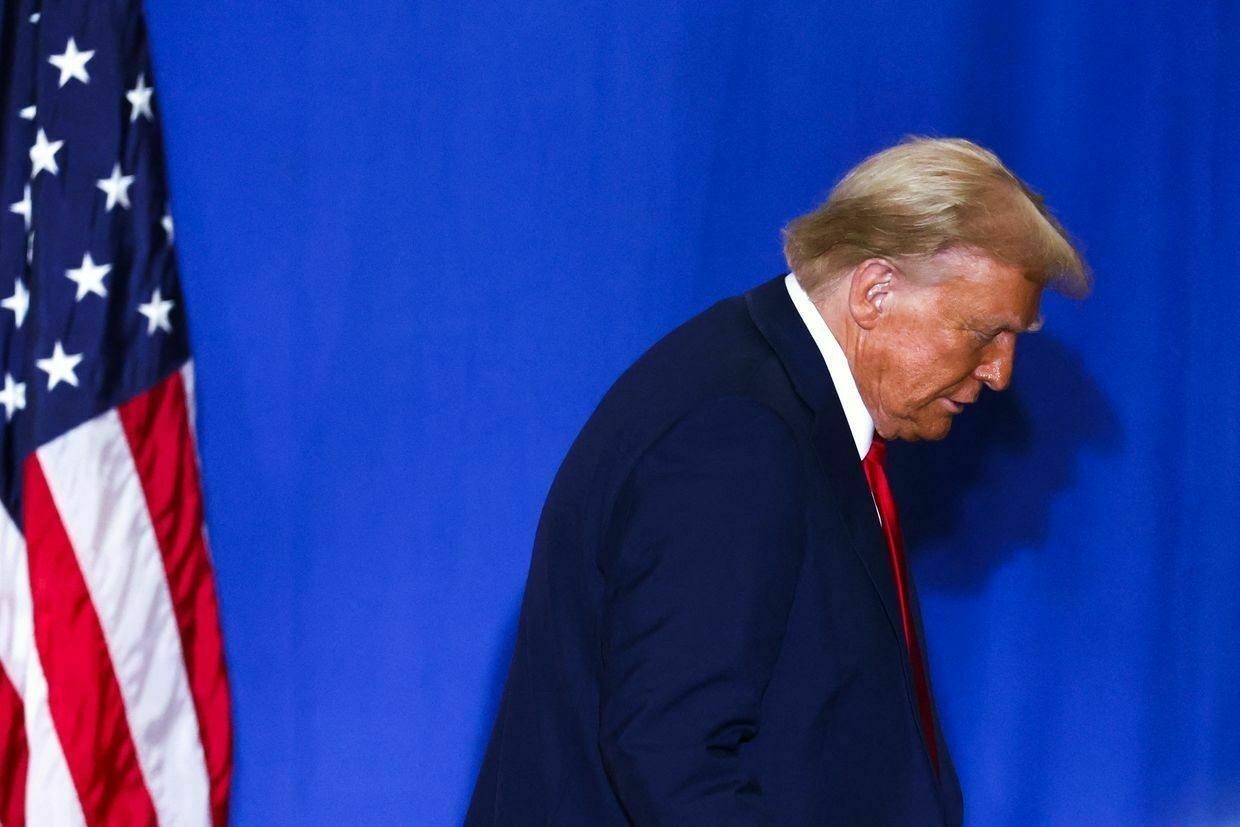
-
Ukraine has no great options if US recognizes Crimea as Russian
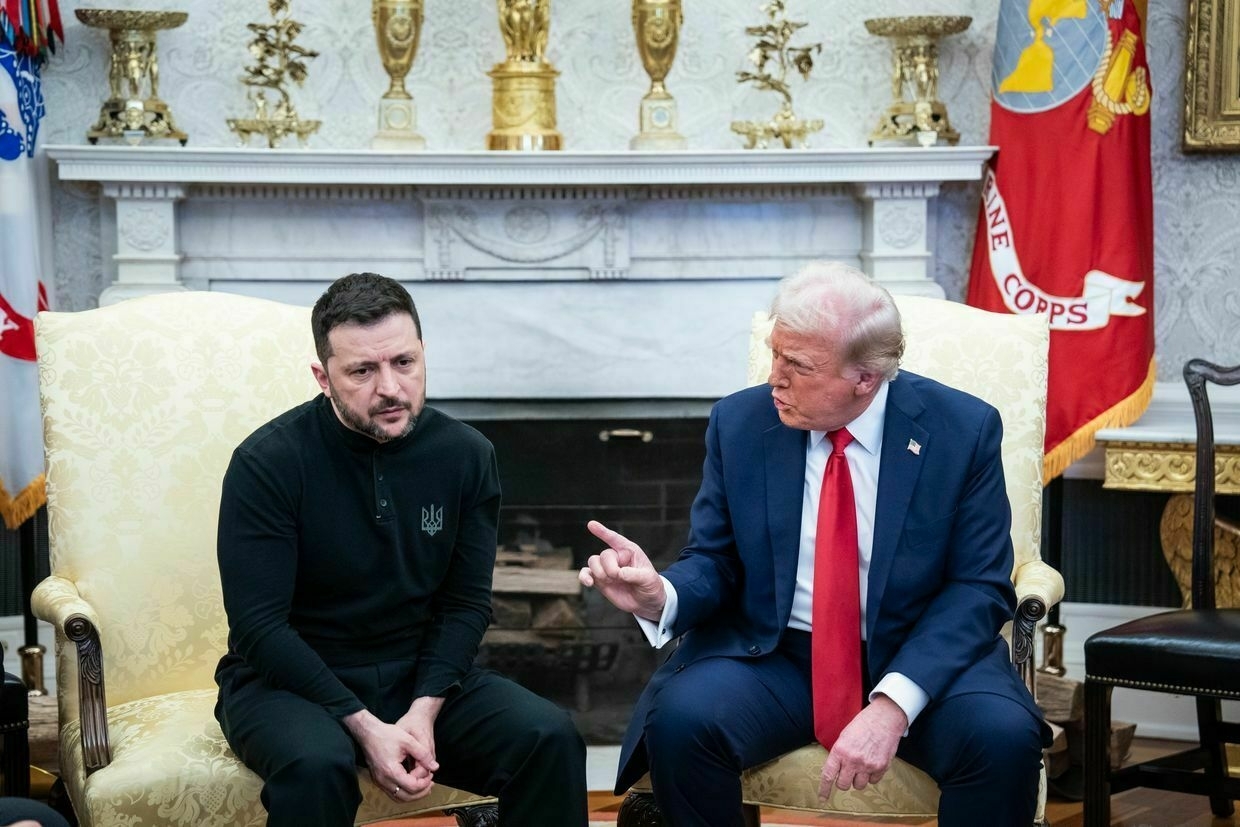
Ukraine is facing a crossroads in its fight against Russia’s full-scale invasion, with the possibility of being forced to reject an unfavorable peace deal being imposed under huge pressure from the U.S.
The red line for Kyiv could be a reported proposal from the White House that would give Russia de jure recognition of Crimea as a Russian territory — a move that would end more than a decade of bipartisan consensus rejecting the annexation, based on a bedrock of long-held international norms.
“Under Trump, the Crimean Declaration was signed during his first term in 2018, where the United States did not recognize Crimea as part of Russia,” Volodymyr Ariev, a lawmaker with the European Solidarity Party, told the Kyiv Independent.
“If the U.S. violates this declaration, which it itself made, it will present itself as an unreliable partner worldwide… and open Pandora’s box globally."
Ukraine finds itself in an immensely frustrating position, having done all that was asked of it by the U.S. since the peace process began in earnest, yet now facing demands that are likely impossible.
On March 11, Kyiv signed off on a U.S.-proposed, full 30-day truce, and has taken steps towards signing a mineral deal with Washington after Trump cut off military and intelligence sharing following a now infamous rebuke of Zelensky in the Oval Office in February.
Russia has refused to agree to a full ceasefire, and has continued devastating attacks against Ukrainian civilians, yet the White House has not applied any sanctions or pressure to get them to stop.
Despite this, the U.S. is now pushing a peace deal that rewards Russia’s war of aggression, and strips Ukraine of territory with no security guarantees that could prevent Moscow from launching another war in the future.
This frustration was evident on April 23 when Zelensky said Ukraine insists on an “immediate, full, and unconditional ceasefire."
“That was the proposal put forward by the United States on March 11 of this year — and it was absolutely reasonable,” Zelensky said.
“This is absolutely possible – but only if Russia agrees and stops the killing."
With no sign of Russia signing up for a full ceasefire, the U.S. proposal is the only game in town — but it’s loaded against Kyiv right from the outset.
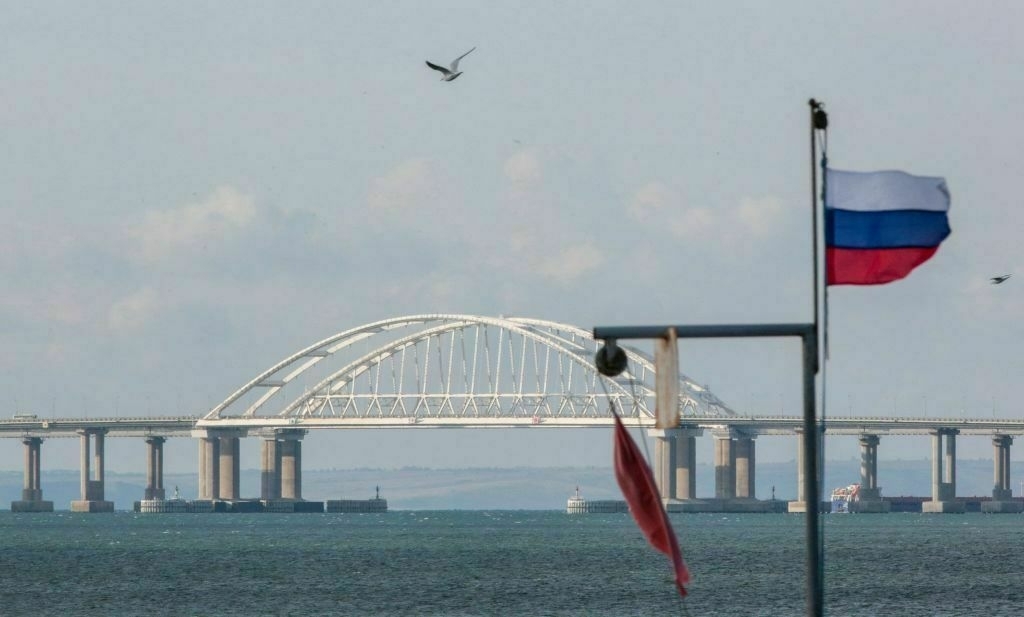
Russia’s illegally built Crimean Bridge, Oct. 14, 2022 (Stringer / AFP via Getty Images) The legal restraintOne of the most immediate problems in the event of the U.S. recognizing Crimea as Russian is that Ukrainian law does not allow Kyiv to agree to, or condone the move.
According to the Ukrainian Constitution, Crimea is a legally recognized and inseparable part of Ukraine.
No acts can be passed by the Ukrainian government that contradict the country’s constitution. The constitution can’t be changed during martial law.
The only way Ukraine could legally recognize Crimea as Russian would be to hold a referendum on the issue and put the vote to the people. While recent polling shows the number of Ukrainians willing to make territorial concessions to end the war has risen, a majority still oppose the idea.
Further, polling has not specified between de facto and de jure control, with de jure likely to be more heavily opposed than de facto.
“No Ukrainian government has a mandate to recognize Crimea as Russian,” Halyna Yanchenko, a lawmaker from the Servant of the People party, told the Kyiv Independent.
“Any peace agreement that includes such a provision would risk sparking unrest within the country. That’s why no Ukrainian leadership would ever agree to it.
“And there is simply no chance such a deal would pass a vote in Ukraine’s Parliament."
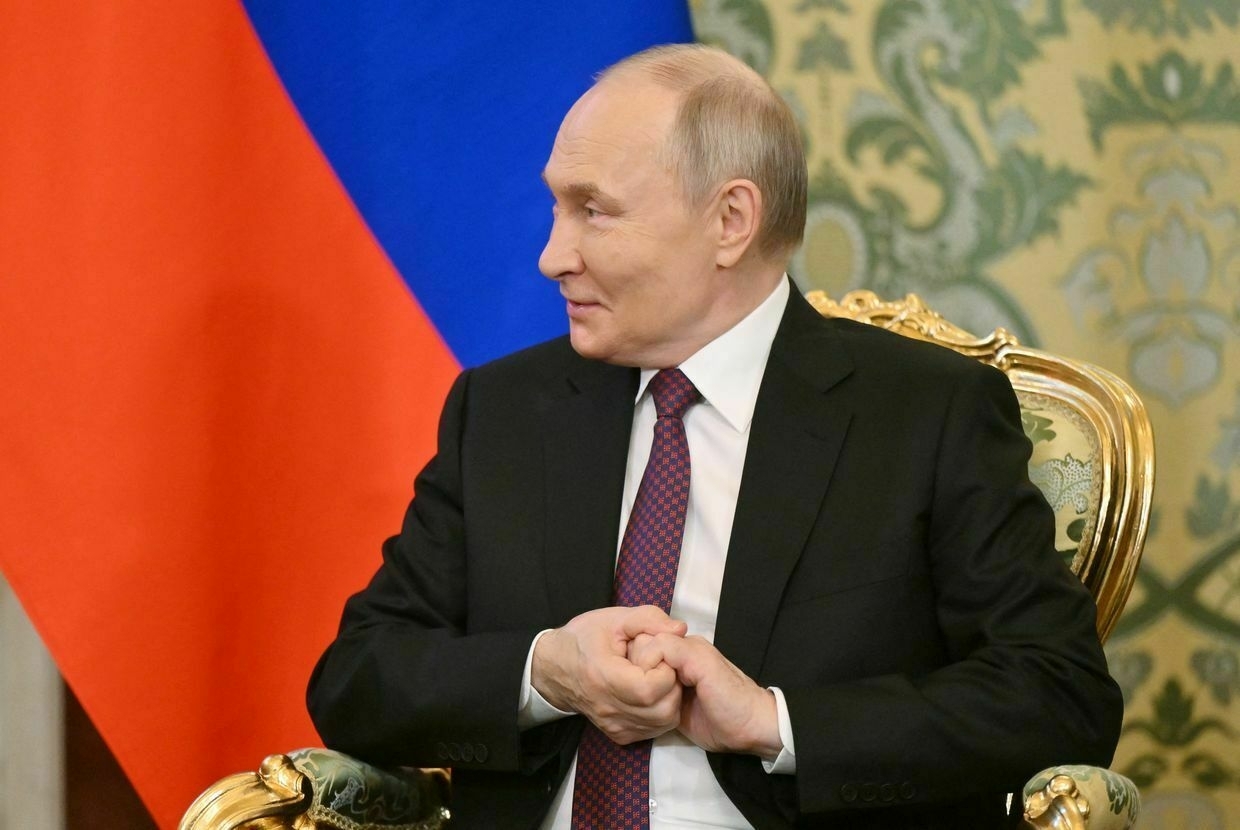
Russia’s President Vladimir Putin at the Kremlin in Moscow on April 22, 2025 (Kristina Kormilitsyna / POOL / AFP) The immediate steps for UkraineIf the U.S. is proposing recognizing Crimea de jure as Russian, Ukraine’s immediate priority should be to lobby against it, Ukrainian political analyst Yevhen Magda, told the Kyiv Independent.
“Ukraine must privately persuade the U.S. of the inadvisability of such a move,” he said.
“Trump’s team should understand that no serious Ukrainian politician would accept such a step, and any proposal aimed at satisfying Putin’s ambitions would only consolidate Ukrainian society around Volodymyr Zelensky — not weaken it."
Magda’s sentiment is shared by Ian Garner, assistant professor in totalitarian studies at Poland’s Pilecki Institute, who told the Kyiv Independent that if he were “in the room with Zelensky right now,” he’d be telling him that Ukraine has to “make every effort to continue to get the Americans back on board."
“But we have to plan assuming that America will not only cease to intervene in the conflict, but may actually, whether intentionally or not, advance Russia’s aims and Russia’s goals,” he adds.
If persuasion failsThe rhetoric coming from the White House suggests the Trump administration will have little patience for anything that diverges from the plan they have already set in motion, including whichever proposals are contained within it.
U.S. Vice President JD Vance said on April 23 that the U.S. presented a “very explicit proposal” to Russia and Ukraine on a peace deal, repeating warnings Washington might drop its peace effort if the belligerent sides refuse.
Talking to journalists during a visit to India, Vance said Washington presented a “very explicit proposal” to Russia and Ukraine, adding it is time for Kyiv and Moscow “to either say yes or for the United States to walk away from this process."
Trump put it even more bluntly last week.
“If for some reason one of the two parties makes it very difficult, we’re just going to say: ‘you’re foolish, you’re fools, you’re horrible people,’ and we’re just going to take a pass,” he said.
All of this risks playing into the hands of the Kremlin, with both Moscow and Washington potentially being able to point to Ukraine’s refusal to go along with the proposal as the main sticking point of negotiations.
“It will be considered as a provocation with a view (for the U.S.) to exit negotiations and to put the blame on the victim of the aggression,” Oleksandr Merezhko, lawmaker and chair of the parliament’s foreign affairs committee, told the Kyiv Independent.
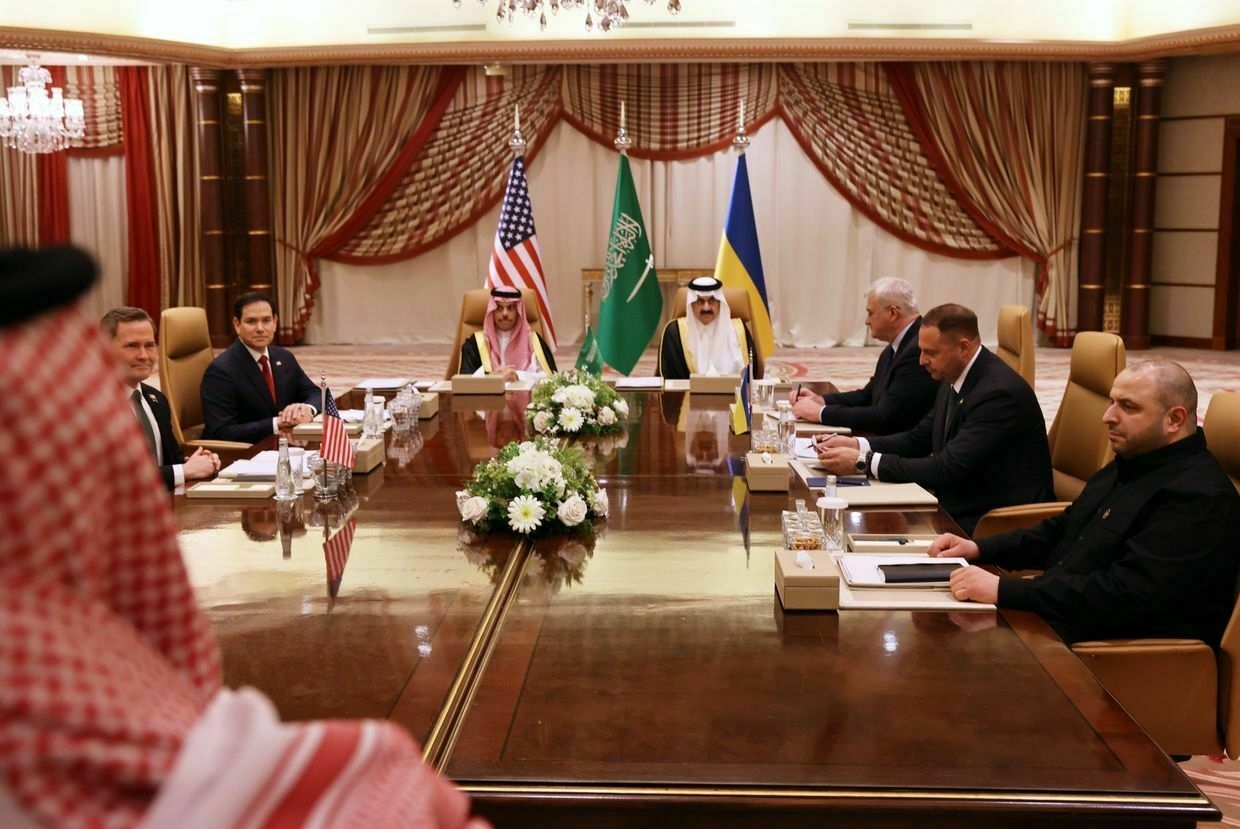
Ukrainian and U.S. delegations in Jeddah, Saudi Arabia, on March 11, 2025. (Salah Malkawi/Getty Images) A US withdrawalWith Ukraine being blamed for the breakdown in peace talks, the U.S. could well follow through on its threat to withdraw, giving Russia what it wanted all along since negotiations began — a free hand to carry on the war.
“Unfortunately, Trump’s team not only lacks a clear and adequate plan to end the Russian-Ukrainian war — they also fail to understand Ukraine’s needs and have, in fact, become a target of reflexive control by the Kremlin,” Magda said.
With its main supplier of military aid out of the picture, Ukraine’s ability to fight back against Russia’s full-scale invasion would be largely reliant on Europe, a prospect that is far more realistic than it was just a few months ago, but still unlikely to fill the gap left by Washington in the near-term.
Europe has only been discussing sending troops to Ukraine in the context of a peacekeeping force to back up a peace deal, and while it is making moves to ramp up defense spending and production, it will be months if not years until it can supply the weapons Ukraine needs in the quantities that will be effective to push Russia back.
“Ukraine has to count on itself and its own resourcefulness,” Garner said.
Ukraine is producing 30% of the weapons it needs itself, Zelensky said earlier this year, and it has managed to stabilize the front line in the east against a Russian army that is facing its own supply and manpower issues.
Garner believes that it is “quite possible and quite plausible” for Ukraine to “hold a defensive line, but added that “it’s not going to be easy."
“It’s going to require continued large-scale sacrifices in terms of lives, in terms of money,” he said.
In the meantime, he said Ukraine should “continue to advocate for itself, continue to Europeanise, continue to fight corruption, continue to democratise, and to move itself ever further towards its allies in Europe."
“Because that’s the thing that’s going to stop Vladimir Putin, right?” Garner said. “If the people are Europeanised and liberalised, then they are never going to accept Russian invasion and Russian occupation, whether it’s diplomatic, political, economic, cultural or indeed military."
‘Dangerous and cruel’ — Trump’s reported Crimea proposal sparks horror among Ukraine’s lawmakersReports that the U.S. could formally give de jure recognition to Russia’s control over Crimea have landed like a bombshell in Kyiv.The Kyiv IndependentChris York
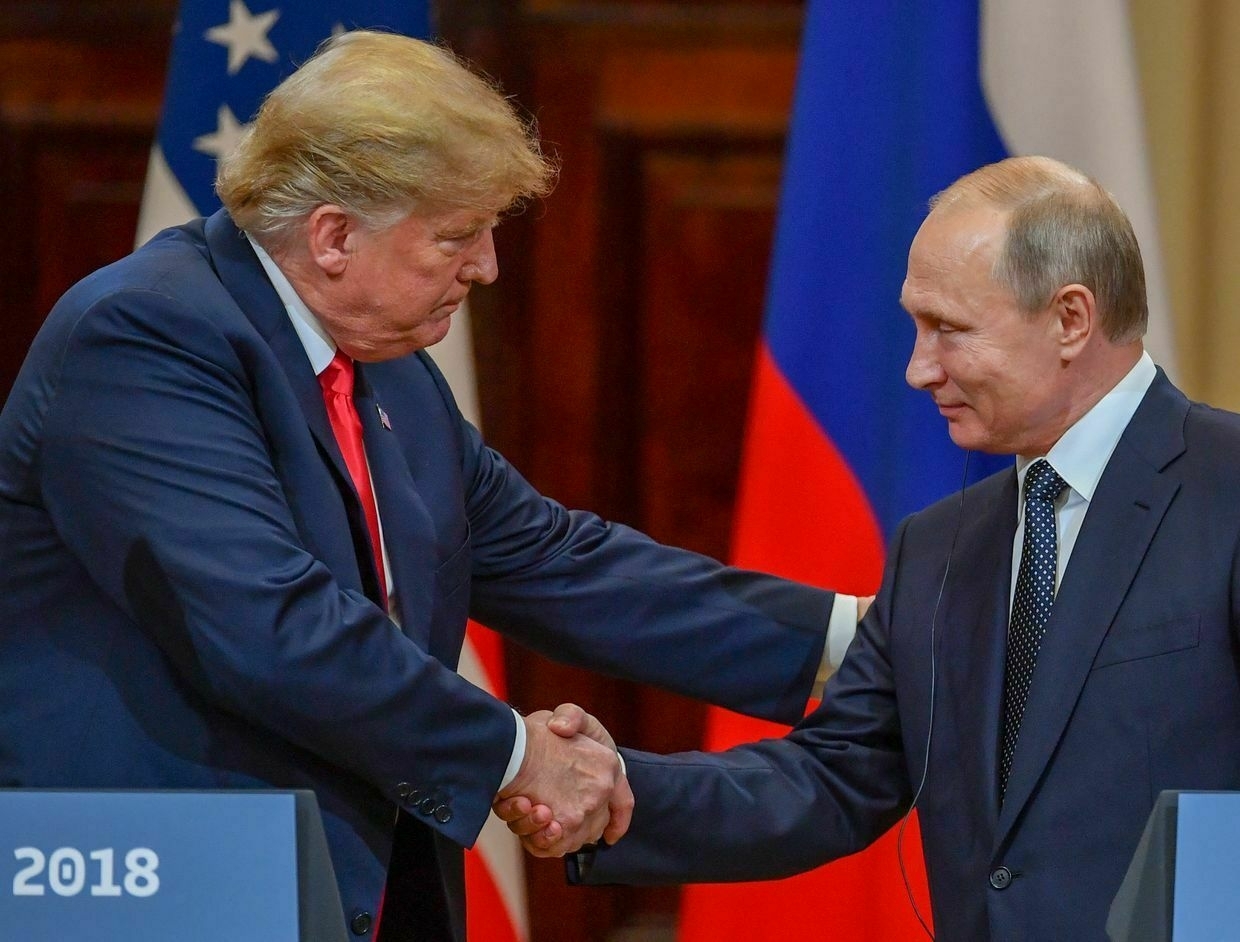
-
Ukrainian drone strike hits Russian drone factory over 1,000 kilometers from border, military claims
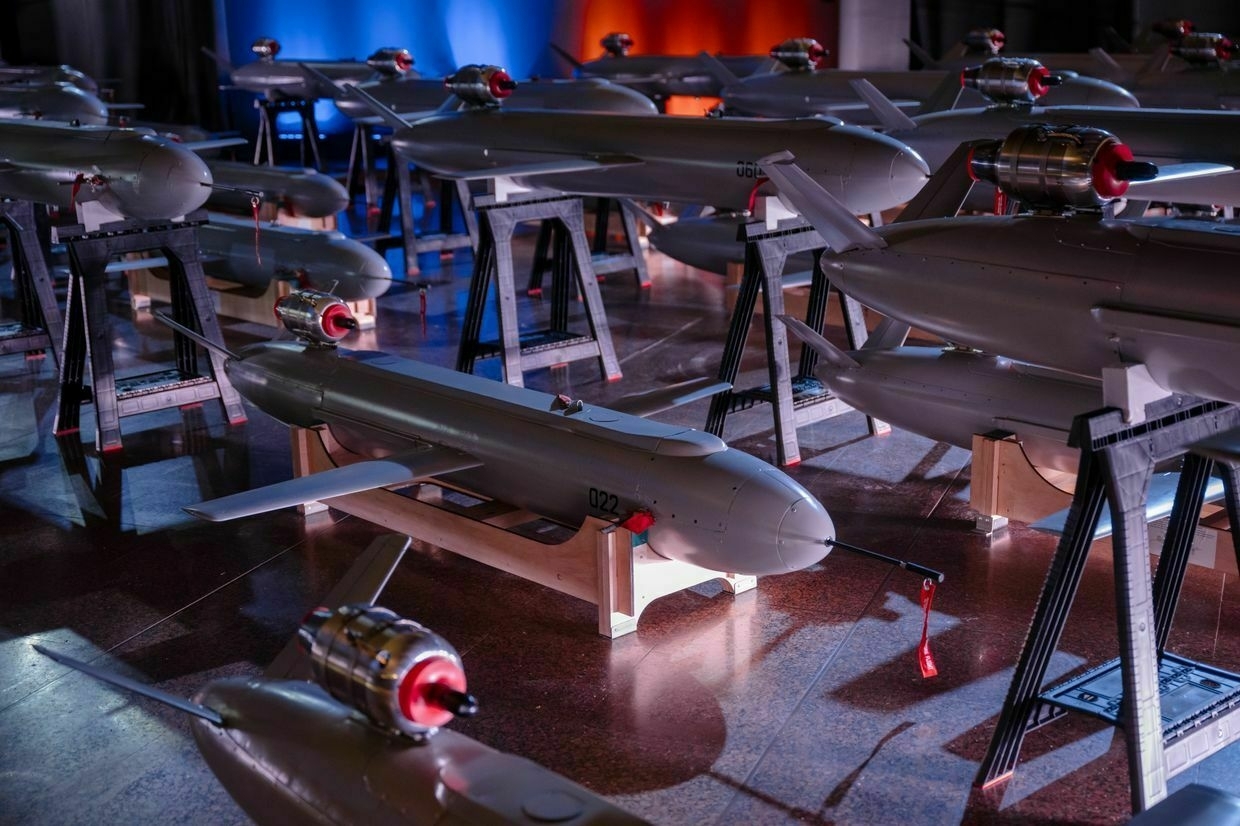
Ukraine’s military said on April 23 that it struck a Russian facility producing combat drones located more than 1,000 kilometers (621 miles) from Ukraine’s border.
Independent news channel Astra reported earlier in the day that a Ukrainian long-range drone strike had targeted Alabuga, sharing purported footage of a drone being shot down.
The Russian Defense Ministry claimed that Russian air defenses shot down one Ukrainian airplane-type drone in Tatarstan at about 12:20 p.m. local time, without providing further details or mentioning Alabuga.
The strike, carried out by Ukraine’s Unmanned Systems Forces in coordination with other branches of the military, targeted a plant in the Alabuga Special Economic Zone of Russia’s Republic of Tatarstan, the General Staff said.
The facility that was hit manufactures up to 300 Iranian-style Shahed drones and their Russian-made variants, Gerans, per day, according to the General Staff. Shahed-style drones are frequently used by Russia in attacks on Ukrainian cities and infrastructure.
The attack is among Ukraine’s deepest strikes into Russian territory since the full-scale invasion began in 2022. Ukraine hit targets over 1,000 kilometers last year for the first time, with one attack occurring 1,800 kilometers (1,118 miles) from the border in Russia’s Murmansk Oblast.
The General Staff said that there were “confirmed hits and explosions in the target area,” and that the damage to the facility as a result of the attack was still being assessed.
“The strike is a justified response against a strategic military site used to support Russia’s aggression and terror against Ukraine and Ukrainian civilians," the General Staff statement read.
Over 6,000 Shahed-type drones were produced in Alabuga last year, as well as thousands of decoy drones used to overwhelm Ukrainian air defenses, said Andrii Kovalenko, an official at Ukraine’s National Security and Defense Council.
Russian forces launch hundreds of drones nearly every night at Ukraine, targeting civilian areas and critical infrastructure. The attacks have intensified in recent months as Moscow continues to reject a U.S.-backed proposal for a 30-day ceasefire, which Kyiv says must include a halt to attacks on civilian infrastructure.
Ukrainian President Volodymyr Zelensky has urged a temporary freeze on long-range drone and missile strikes, but Kremlin officials have dismissed the idea.
Ukraine strikes Russian drone launch site in Kursk Oblast, killing up to 20 operators, General Staff saysRussian forces reportedly used the facility to prepare, equip, and launch reconnaissance, strike, and FPV (first-person-view) drones.The Kyiv IndependentKateryna Hodunova
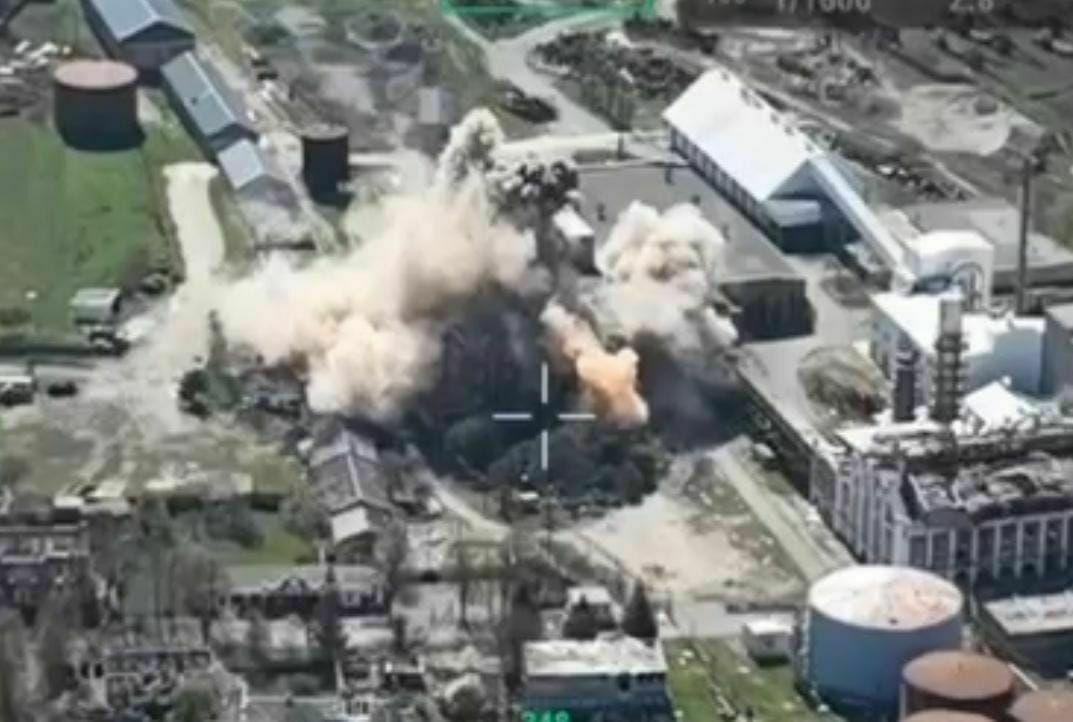
-
US envoy Witkoff to meet Putin in Moscow on April 25, media reports
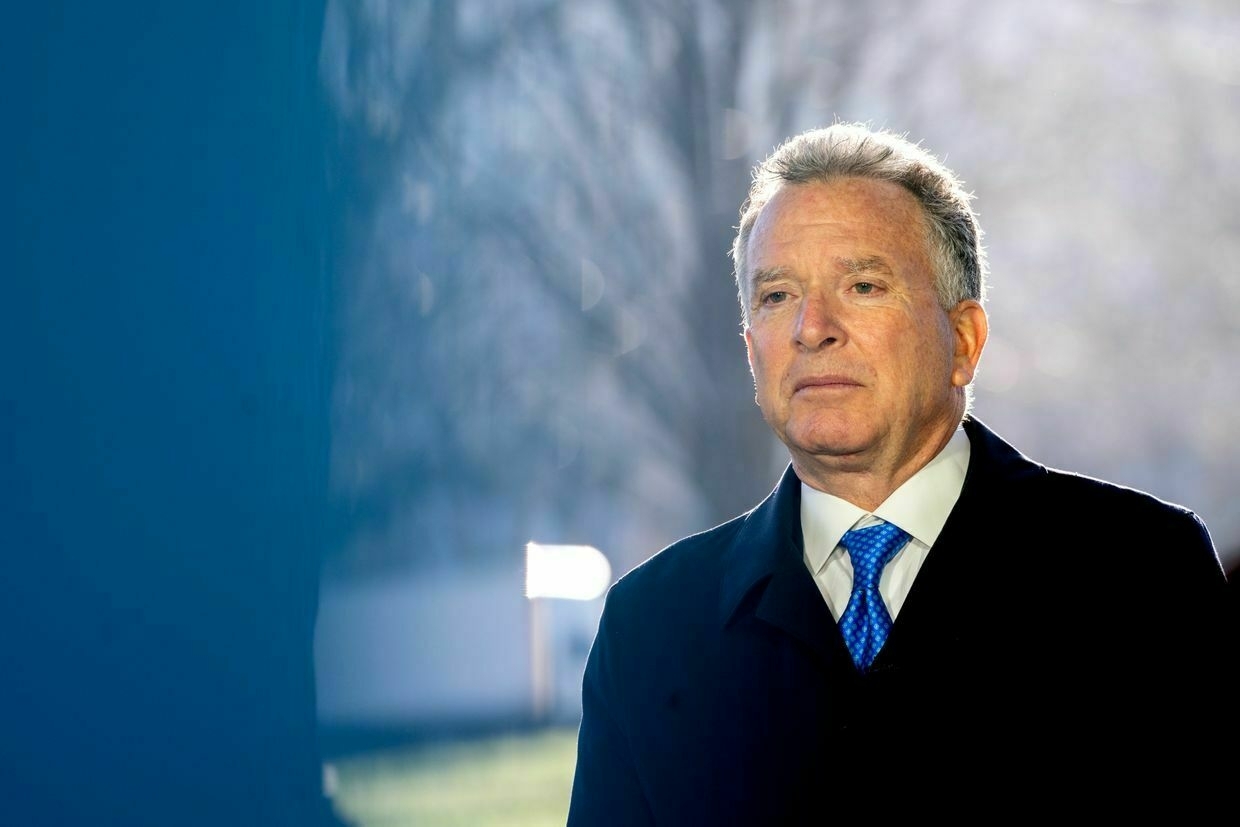
U.S. Special Envoy Steve Witkoff is expected to meet Russian President Vladimir Putin in Moscow on April 25, Axios reported on April 23, citing an unnamed U.S. official.
The visit comes as the Trump administration intensifies efforts to broker a ceasefire in Russia’s war against Ukraine. Washington has warned it may withdraw from the mediation process if no progress is made in the coming days.
Witkoff’s trip follows a summit in Paris on April 17, where senior Trump administration officials presented a draft peace proposal to Ukrainian and European counterparts.
The plan reportedly includes recognition of Russia’s illegal 2014 annexation of Crimea and barring Ukraine from joining NATO — two long-standing demands by the Kremlin.
Ukraine’s response to the proposal was expected during follow-up meetings in London with European, Ukrainian, and American officials on April 23, but U.S. Secretary of State Marco Rubio and Special Envoy Witkoff declined to attend, downgrading the talks.
According to Reuters, Rubio’s decision not to participate in the meetings came after Ukraine delivered a document to European partners on April 22 declaring that Kyiv would not negotiate territorial issues until “a full and unconditional ceasefire” had been achieved.
Witkoff, who serves as the Trump administration's Middle East envoy, has visited Russia several times this year and met with Putin on at least three occasions.
The envoy has drawn criticism from both U.S. and Ukrainian officials for promoting Kremlin-aligned positions, including the idea of trading Ukrainian territory for peace.
Speaking on April 22, President Volodymyr Zelensky said Ukraine would not entertain any proposal that concedes sovereign territory. "This violates our Constitution. This is our territory, the territory of the people of Ukraine," he said.
U.S. President Donald Trump has denied that Ukraine is being pressured to recognize Crimea as Russian. "Nobody is asking Zelensky to recognize Crimea as Russian Territory," he posted on Truth Social on April 23.
The U.S. president also went on to dismiss Zelensky's firm rejection of any recognition of Russia's control over Crimea as "harmful to the peace negotiations."
Despite Trump's repeated claims of progress, Russia has rejected a U.S. proposal for a 30-day ceasefire and continues offensive operations. Putin declared a symbolic one-day Easter truce on April 19, which Ukraine reported was violated around 3,000 times.
Kyiv has separately proposed a 30-day truce focused on halting long-range drone and missile strikes on civilian infrastructure, which the Kremlin has said it will "look into."
While expressing frustration with Russia's refusal to de-escalate, the U.S. president has yet to impose new sanctions or take punitive measures in response to Moscow's ongoing invasion.
Trump says ‘nobody is asking’ Ukraine to recognize Crimea as Russian“Nobody is asking (President Volodymyr) Zelensky to recognize Crimea as Russian Territory, but if he wants Crimea, why didn’t they fight for it eleven years ago when it was handed over to Russia without a shot being fired?” U.S. President Donald Trump wrote.The Kyiv IndependentTim Zadorozhnyy
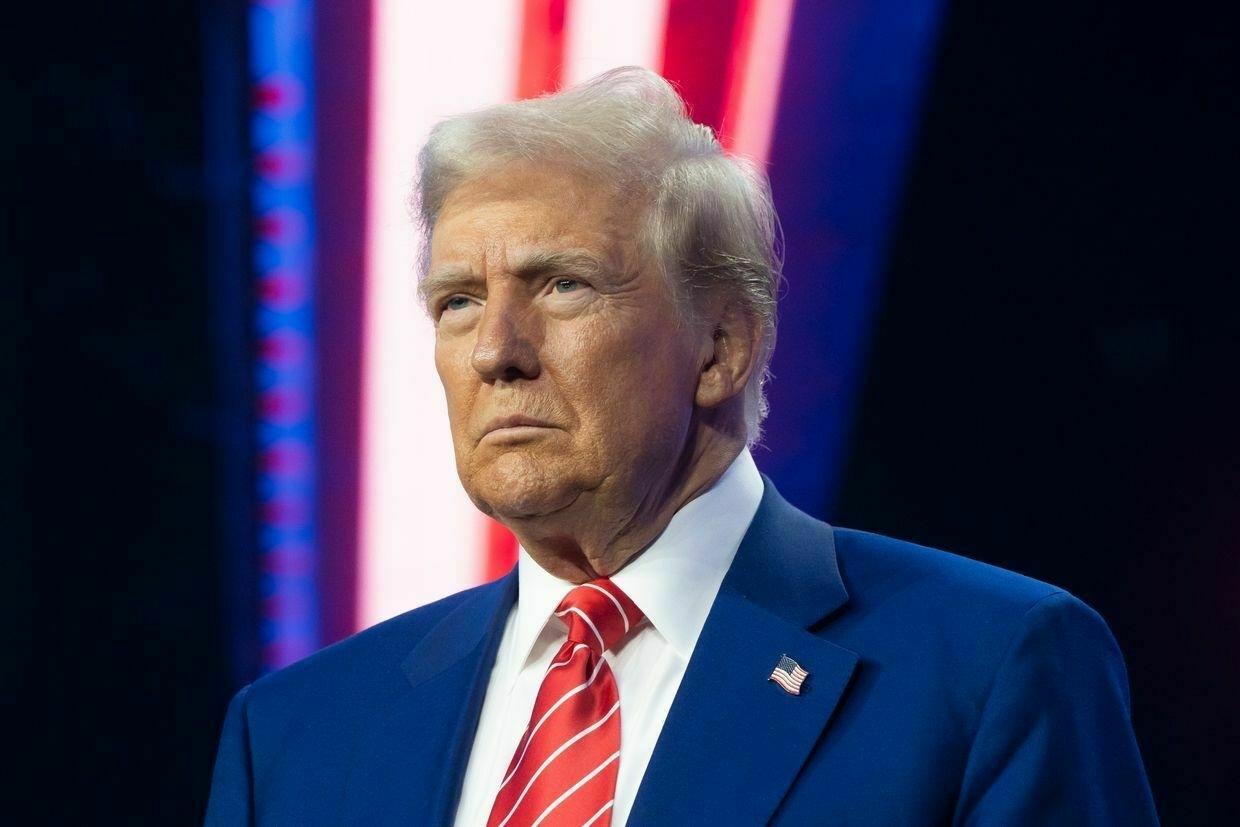
-
Ukrainians react to US proposal of recognizing Crimea as Russian
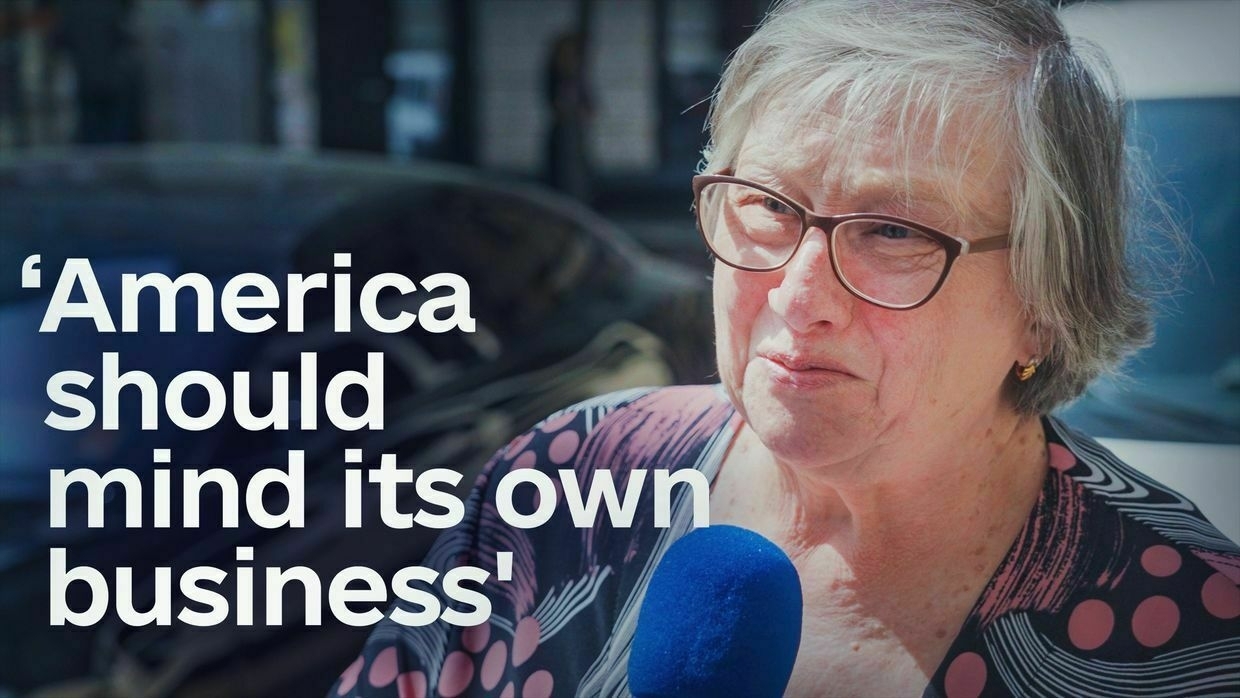
The U.S. media outlet Axios reported on April 23 that the U.S. President Donald Trump administration’s final proposal for ending the Russia-Ukraine war included the U.S. de jure recognizing Russia’s annexation of Crimea and de facto recognizing its control of other occupied Ukrainian territories. We asked Kyiv residents for their reactions to the U.S. proposal.
-
Rubio skeptical Ukraine-Russia peace deal will happen this week
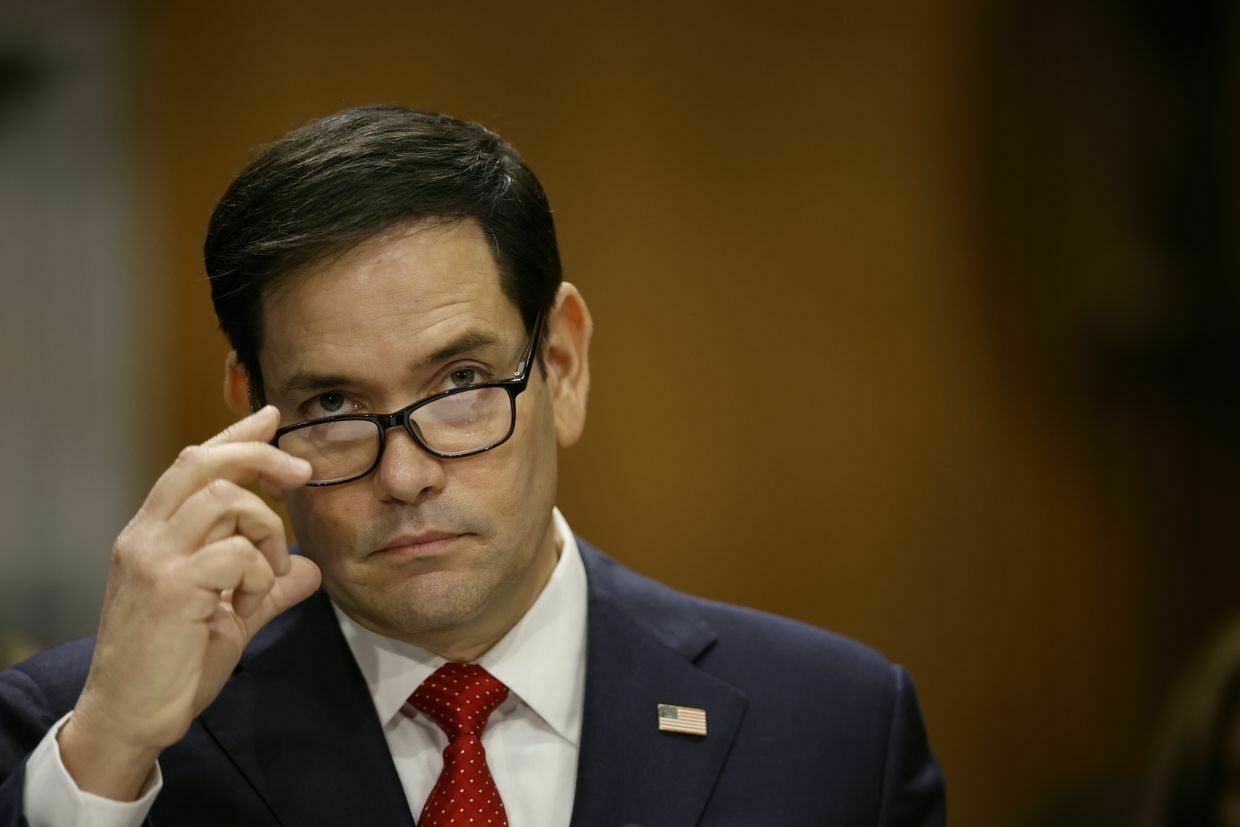
U.S. Secretary of State Marco Rubio said he was hopeful a peace agreement between Russia and Ukraine can be reached soon but expressed doubt that any deal could materialize within a week, he said on April 23 in an interview with the Honestly podcast.
“I don’t know about by the end of the week. I’m hopeful that we can get to something quickly,” Rubio said. “And I remain hopeful that we can get something done because this is a terrible war and it needs to end.”
His comments come as the White House ramps up diplomatic efforts for Kyiv and Moscow to come to the table to negotiate an end to Russia’s full-scale invasion. U.S. President Donald Trump declared on April 21 said that a deal between Ukraine and Russia could be struck “this week.”
In the interview, Rubio also said the U.S. understands Russia’s position better after reestablishing contact with Moscow. Former U.S. President Joe Biden cut off formal communications with the Kremlin after the start of the invasion in February 2022.
“We have a better understanding of that now because we’ve actually spoken to them after three years of not speaking to them,” he said.
Rubio also said there is “no military end to this war,” adding that “Russia’s not just going to roll over Ukraine and take the whole country, and Ukraine’s not going to push them all the way back to where they were before 2014.”
U.S. Vice President JD Vance said during a visit to India on April 23 that the U.S. had submitted a “very explicit proposal” to both Kyiv and Moscow. Vance warned that unless the two sides move forward, Washington may abandon its mediation efforts.
“We really tried to understand things from the perspectives of both Ukrainians and Russians,” he said, describing the plan as “very fair.” The proposal reportedly includes freezing current front lines and accepting that both sides will need to cede some territorial claims.
Rubio also signaled that Washington may move on, unless progress is made. “Ultimately it’s not up to us. It’s up to Russia, and it’s up to Ukraine. They have to make the decision that they’re willing to move closer to one another, and we need to start to see progress.”
Rubio and Special Envoy Steve Witkoff declined to participate in diplomatic meetings taking place in London on April 23. The talks were originally planned as a ministerial-level summit involving the U.S., U.K., Germany, France, and Ukraine, but was downgraded after Rubio’s withdrawal.
Downgraded peace talks between US, Ukraine, and European allies begin in LondonThe meeting was to be held at a ministerial level, but was downgraded after U.S. Secretary of State Marco Rubio canceled his participation.The Kyiv IndependentMartin Fornusek
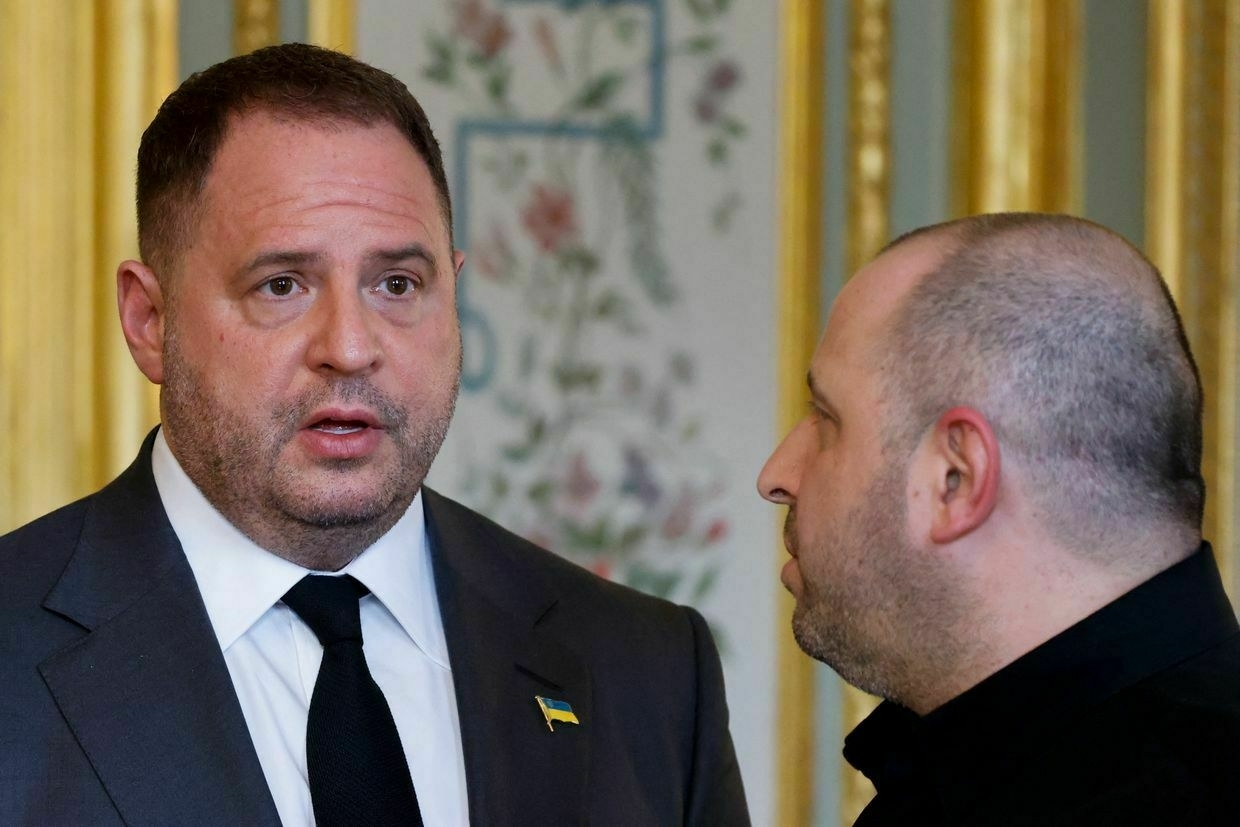
-
Trump says 'nobody is asking' Ukraine to recognize Crimea as Russian
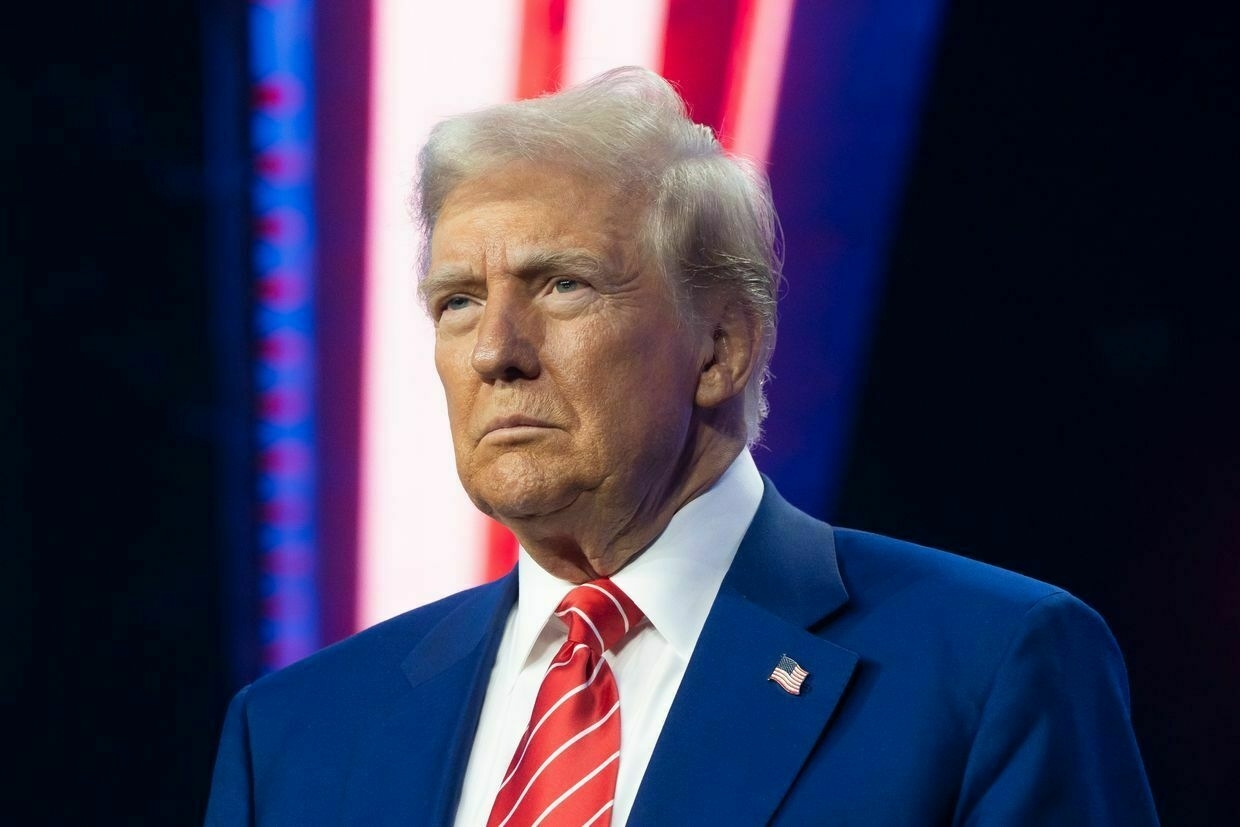
President Donald Trump claimed in a post on his social media platform Truth Social that the U.S. is not forcing Ukraine to recognize Crimea as Russian, following reports a U.S. peace plan includes the U.S. formally recognizing Moscow’s illegal annexation of Crimea.
“Nobody is asking (President Volodymyr) Zelensky to recognize Crimea as Russian Territory, but if he wants Crimea, why didn’t they fight for it eleven years ago when it was handed over to Russia without a shot being fired?” Trump wrote.
If Trump recognizes Crimea, the biggest losers are Ukraine — and the US, experts sayFormally recognizing Crimea as Russian would breach international law and potentially open the door to further global conflicts, experts warn.The Kyiv IndependentNatalia Yermak
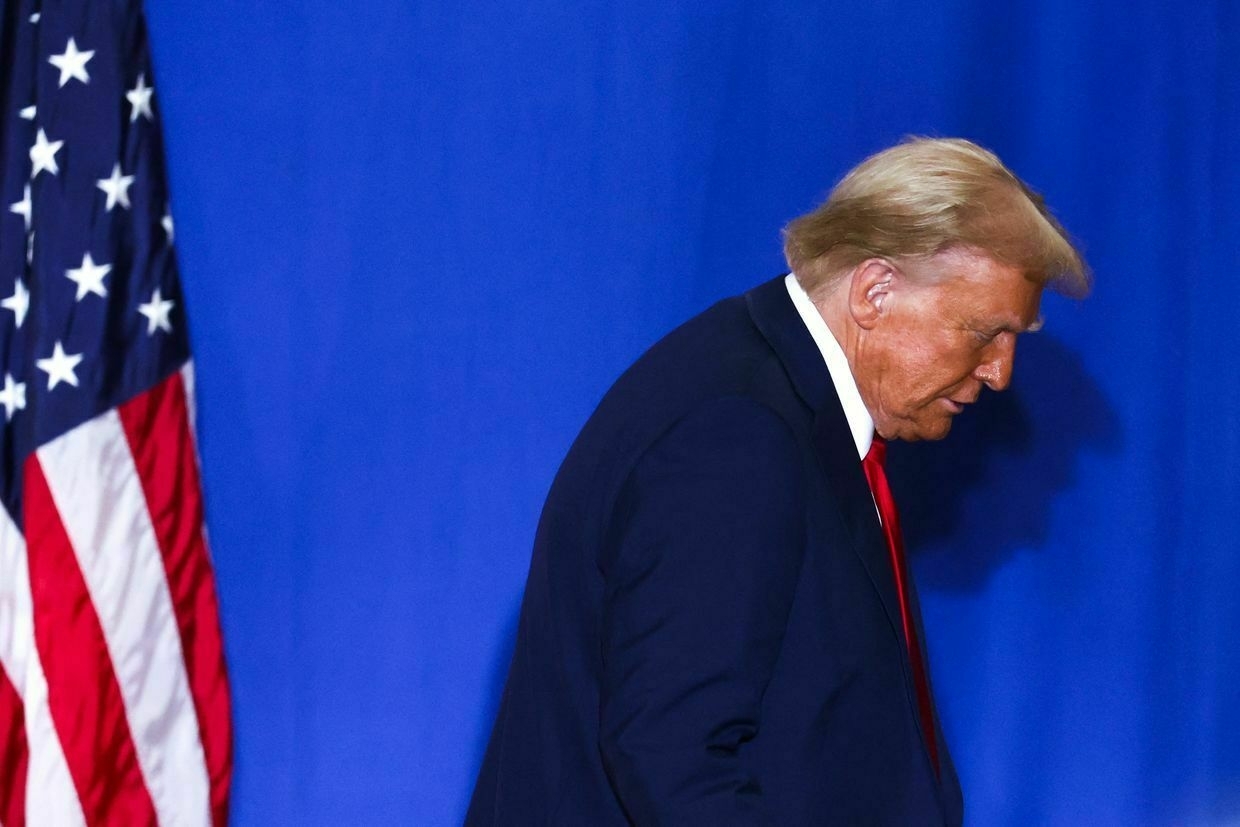
-
Media identifies over 1,500 foreign mercenaries from 48 countries Russia recruited for war in Ukraine
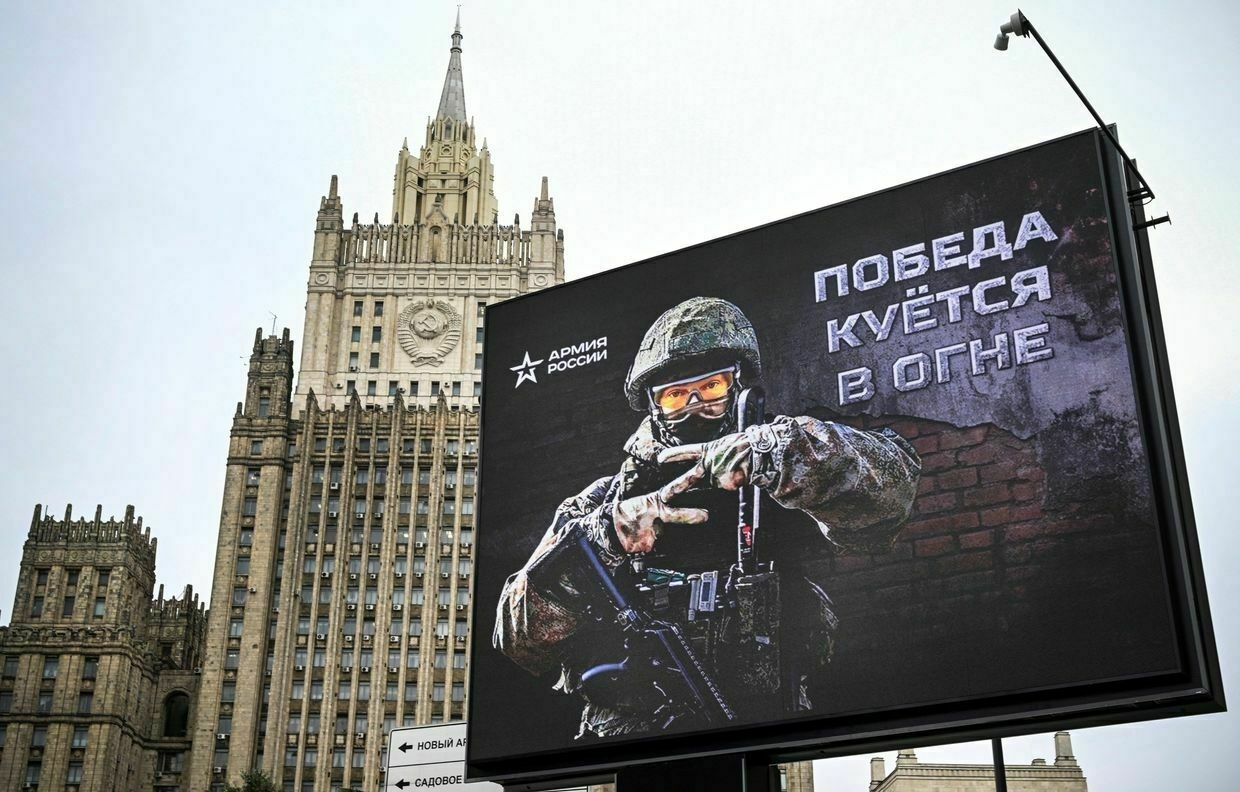
More than 1,500 foreign mercenaries from 48 countries recruited to fight for Russia against Ukraine have been identified in an investigation by the independent Russian media outlet Important Stories published on April 23.
Despite Russian President Vladimir Putin’s earlier claims that Russia had “no need” for foreign fighters, the data reveals widespread recruitment through official military selection points in Moscow.
Journalists obtained the names and nationalities of the mercenaries through a leaked database from the Unified Medical Information and Analytical System of Moscow.
According to the publication, these individuals passed through Moscow’s recruitment center between April 2023 and May 2024. Of the more than 1,500 foreigners processed, at least 1,300 have been identified by nationality.
Nepal tops the list, with at least 603 nationals joining the Russian army. The influx reportedly began in small groups in mid-2023, escalating to over 370 Nepalese recruits passing through the Moscow selection point in October alone.
Recruitment declined by the end of the year, reportedly following diplomatic protests from Nepal.
Other nationalities include citizens of Sri Lanka (64), China (51), India (43), Serbia (8), Cuba (8), and Latvia (4). From former Soviet states, recruits include citizens of Tajikistan (86), Uzbekistan and Belarus (71 each), Kyrgyzstan (64), Kazakhstan (59), Turkmenistan (19), and Moldova (12).
The total number of foreign fighters is likely far higher. On Feb. 11, CNN reported that up to 15,000 Nepalese citizens could have been recruited by Russia.
Ukrainian forces have also confirmed the presence of foreign fighters on the battlefield. In early April, two Chinese nationals were captured in Donetsk Oblast while fighting for Russia.
President Volodymyr Zelensky later said that “several hundred” Chinese nationals were taking part in the war on Russia’s side. One detainee reportedly paid a middleman 300,000 rubles (about $3,500) to enlist in exchange for Russian citizenship.
China has denied involvement, claiming it urges its citizens to avoid armed conflicts. Moscow has also used some 12,000 North Korean army troops dispatched by Pyongyang to counter the Ukrainian incursion in Kursk Oblast.
‘Groundless accusations, political manipulations’ — China reacts to Ukraine summoning its envoyA day earlier, Chinese Ambassador to Ukraine Ma Shengkun was invited to the Ukrainian Foreign Ministry to meet with Deputy Foreign Minister Yevhen Perebyinis.The Kyiv IndependentKateryna Hodunova
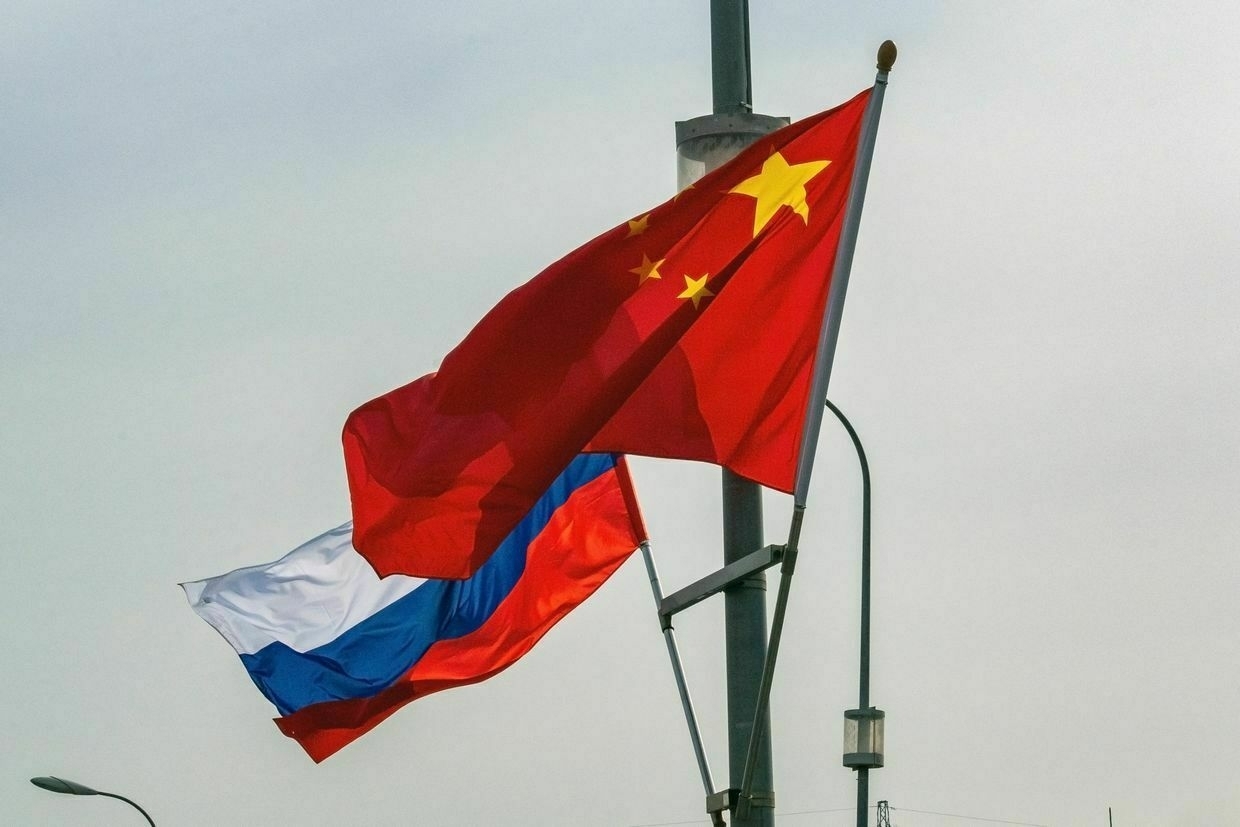
-
If Trump recognizes Crimea, the biggest losers are Ukraine — and the US, experts say
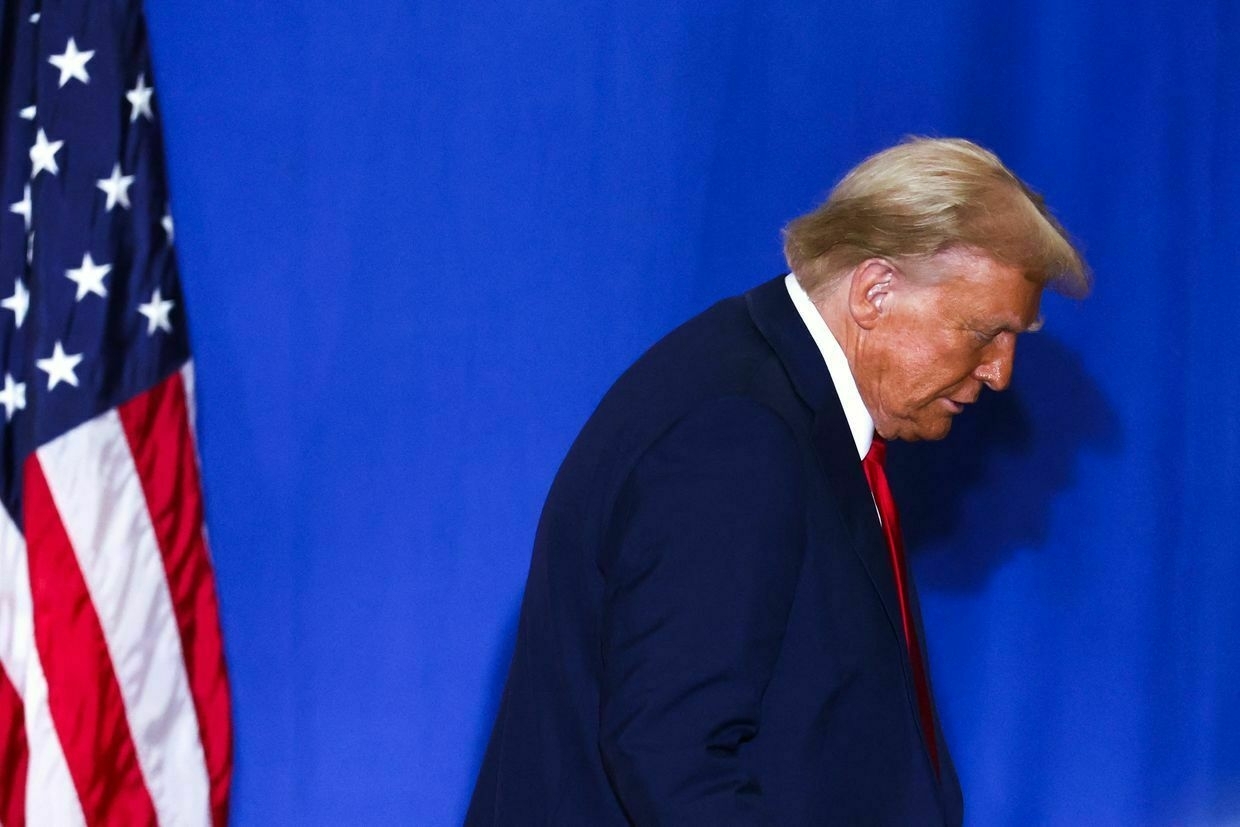
As Ukrainian, American, and European officials meet in London to discuss a U.S. peace plan that includes recognizing Russia’s illegal annexation of Crimea, experts warn that formally giving Crimea up to Russia would breach international law and potentially open the door for further global conflicts.
Other experts go further, saying the U.S. peace proposal — which also reportedly includes the de facto recognition of Russian-occupied Ukrainian territory and a ban on NATO membership for Ukraine, while asking little of the Kremlin in return — amounts to the U.S. rewarding Russia for its invasion and Ukraine’s capitulation.
“This isn’t negotiation, this is surrender,” said Aaron Gasch Burnett, security expert and senior fellow at Democratic Strategy Initiative.
“The Russians get everything they want,” he told the Kyiv Independent, adding that “the U.S. is essentially trying to negotiate Ukraine’s surrender, and the U.S. is surrendering its own international leadership by doing it.”
Speaking to journalists on April 23, U.S. Vice President JD Vance called the plan “very fair,” before threatening both Russia and Ukraine to say yes to the proposal or the U.S. would walk away from negotiations.
Violating international law and undermining securityRussia illegally annexed Crimea in 2014 in the wake of the Euromaidan Revolution that was set off by then-President Viktor Yanukovych’s decision to pull out of an association agreement with the EU.
In response, the U.S. and 99 other member states in the United Nations General Assembly voted on a resolution declaring the annexation illegal.
Formally recognizing Russia’s illegal annexation now “would be a clear violation of international law,” said Stefan Wolff, professor of international security at the University of Birmingham.
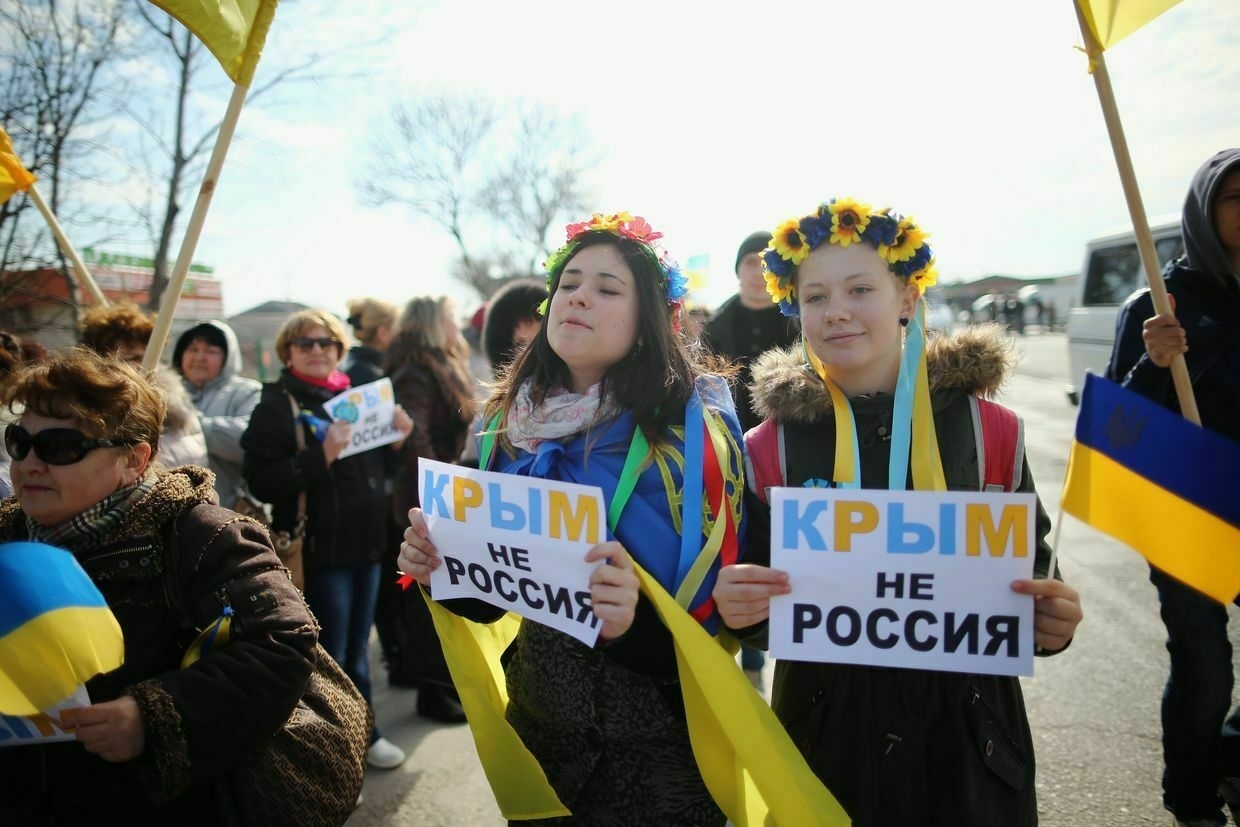
Two young Ukrainian women hold signs that read ‘Crimea is not Russia’ during a protest against the forthcoming illegal “referendum” in Crimea on March 14, 2014, in Simferopol, Ukraine. (Dan Kitwood via Getty Images) “It is unlikely that a majority of Ukraine’s remaining allies would follow suit, but other countries more closely aligned with Russia already might,” Wolff told the Kyiv Independent.
Leaving Crimea in Russia’s hands would “open up a can of worms on all kinds of potential global conflicts,” Burnett said.
“Authoritarians will learn that all they really have to do is invade their neighbor, stick it out, and then eventually they’ll be rewarded for it — that imperialism pays,” he added.
Even if a cascading effect of other invasions and annexations as a result of the U.S. formally recognizing Crimea remains to be seen, several candidates could take Russia’s example like Venezuela with Guayana, Morocco with Western Sahara, Rwanda and the eastern DRC, Sudan or South Sudan and the Abyei territory, according to Wolff.
“Those countries might feel emboldened,” Wolff said. “But it doesn’t mean that they would necessarily get away with it because their neighbors, regional and global, might feel disinclined to tolerate such illegal land grabs.”
Ukraine’s neighbors in Europe also have the necessary resources to oppose the U.S. proposal, according to Burnett.
“If (the U.S. recognizes Crimea as Russian), that’s on Europe,” he said. “It will become an indictment of how far Europe has fallen if it agrees to this sort of deal.”
“(They could react by) increasing their own willingness to support Ukraine with military kit, with boots on the ground in some form, or most consequentially, in my view, to finally seize the $300 billion in frozen assets and transfer them to a compensation fund for Ukraine,” Burnett added.
Europe must finally take charge of its security — starting in UkraineIt ended with a bang, not a whimper. By the close of this year’s Munich Security Conference, the old U.S.-led security order appeared to have changed unrecognizably. Now, as Russia’s full-scale war enters its fourth year and peace talks begin, without clarity on Europe’s orThe Kyiv IndependentTennyson Dearing
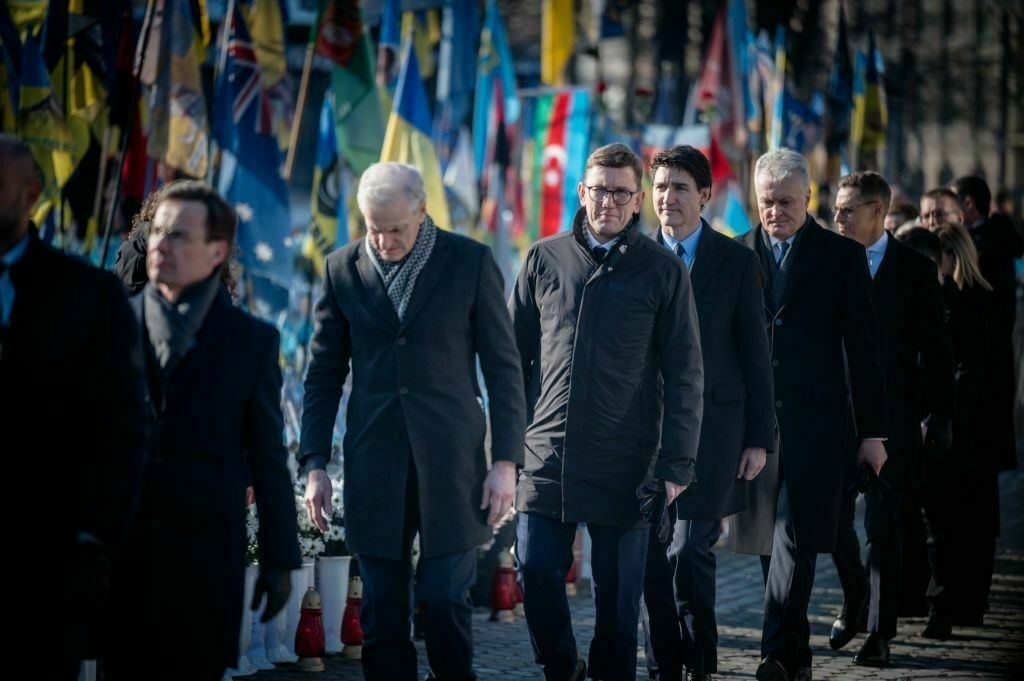
Weak negotiatorsDuring his first term in office, U.S. President Donald Trump reaffirmed the U.S.’s opposition to Russia’s illegal annexation of Crimea by adopting the Crimea Declaration.
The declaration, issued by then-Secretary of State Mike Pompeo, stated that, “The United States rejects Russia’s attempted annexation of Crimea and pledges to maintain this policy until Ukraine’s territorial integrity is restored.”
Trump’s current plan to reverse the course upheld by his own previous administration and the international community appears less of a negotiating tactic than a capitulation to Russia’s demands, experts say.
“The idea that you would have both recognition of Crimea and no NATO for Ukraine on the table is ridiculous,” Burnett said.
“It may be different if the U.S. were offering (that Russia) can have Crimea, but the rest of Ukraine is coming into NATO. (At least) there would be actual negotiation happening there,” he added.
“The U.S. is not asking Russia to give up anything.”
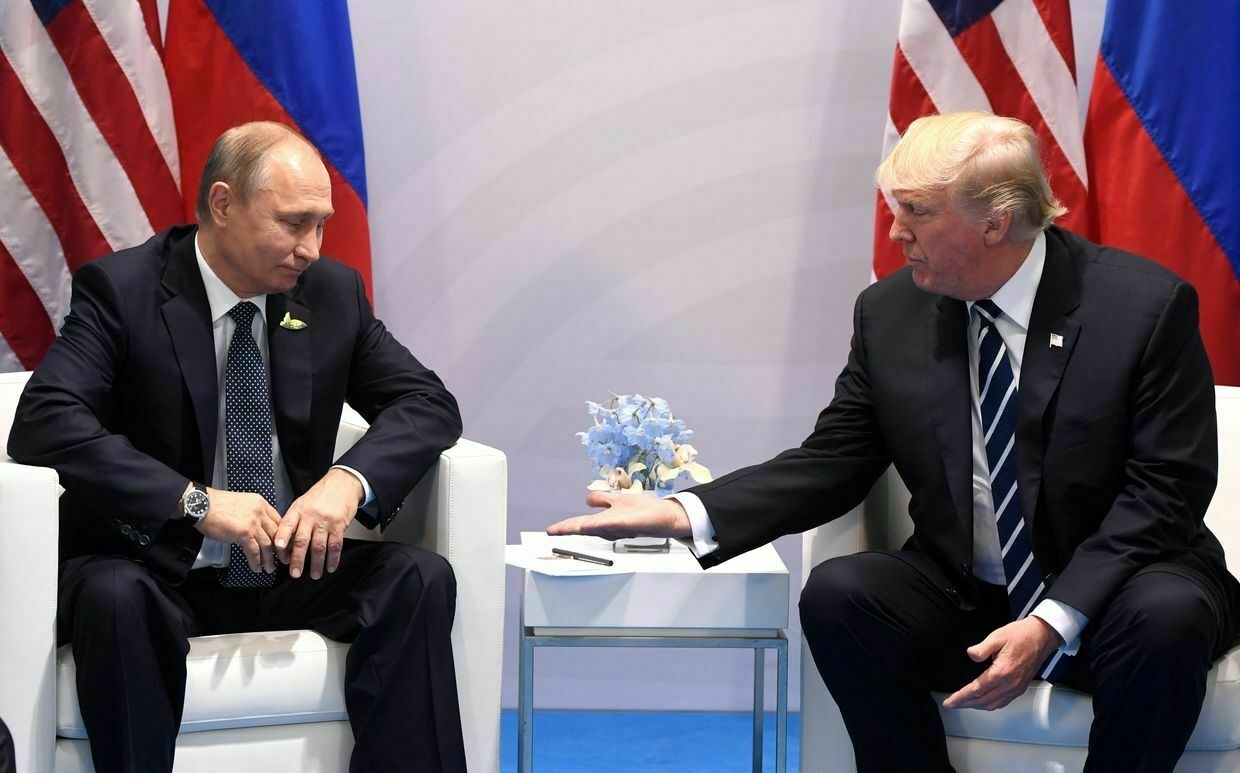
U.S. President Donald Trump and Russian President Vladimir Putin shake hands during a meeting at the G20 Summit in Hamburg, Germany, on July 7, 2017. (Saul Loeb / AFP via Getty Images) Experts say that a peace proposal that gives up too much to Russia sacrifices its international leadership by threatening its own interests, which include a peaceful, stable Europe.
“It would also be unprecedented in the sense that Washington would be siding with Russia to an extent that even Beijing has not,” Wolff said.
“All the sticks are for Ukraine, and carrots only exclusively for Putin,” said Oleksandr Merezhko, a top MP from President Volodymyr Zelensky’s party. “It looks unfair, it looks ridiculous. As a result of this, Trump looks weak, definitely not strong, not great.”
“The only thing it really does is it signals to the world that America is keen to wash its hands off of this whole thing,” Burnett said.
Will Ukraine accept the recognition of Russia’s illegal annexation?There is no constitutional mechanism for the Ukrainian government to accept a breach of territorial integrity, according to lawmakers. The Constitution of Ukraine says that issues of altering the territory of Ukraine, which legally includes Crimea, are to be resolved exclusively by nationwide referendum.
Recognizing Russia’s illegal annexation of Crimea is a highly unpopular decision among Ukrainians. Accepting the U.S. proposal would likely be political suicide for anyone in Ukrainian leadership.
“No Ukrainian government has a mandate to recognize Crimea as Russian.”
“Recognizing Crimea as Russian not only contradicts Ukraine’s official position — that it is a clear red line — and it would never be accepted by the Ukrainian people,” said Halyna Yanchenko, a Ukrainian lawmaker from President Volodymyr Zelensky's Servant of the People Party.
“No Ukrainian government has a mandate to recognize Crimea as Russian,” she told the Kyiv Independent. “There is simply no chance such a deal would pass a vote in Ukraine’s Parliament.”
Nariman Dzhelyal, deputy chairman of the Mejlis, a representative body of indigenous Crimean Tatars who have faced persecution by Russia in Crimea, said that Crimean Tatars have always supported Ukraine’s territorial integrity and European integration.
“The firm statements of our leadership about their intention to continue the struggle for the liberation of Crimea are the only thing that gives Ukrainian citizens in Crimea a sense of hope for the future,” Dzhelyal, former political prisoner who was released in an exchange in 2024 after three years in a Russian prison, told the Kyiv Independent.
Since the start of the full-scale Russian invasion, polls have shown that Ukrainians largely refuse to give up Crimea.
In March 2022, 80% of respondents in a poll by the independent group Rating said Ukraine should do everything possible to bring Crimea — and the Russian-occupied eastern Donbas — back under Ukraine’s control.
Some in Ukraine have grown to accept the idea of territorial concessions in exchange for peace over the course of the full-scale invasion. But according to a nationwide poll by the Kyiv International Institute of Sociology in 2024, no more than 32% of Ukrainians agreed to consider giving away some territories to Russia.
“Our people will not accept a frozen conflict disguised as peace. We will never recognize the occupation of Crimea,” said Yuliia Svyrydenko, Ukraine’s first deputy prime minister and economy minister, on April 23.
Chris York contributed reporting to this article.
Note from the author:
Hello, this is Natalia Yermak, the author of this piece. In our newsroom, it's "all hands on deck" in the days like this, when Ukraine's fate is decided on a global level. Your support is essential to our coverage – please consider supporting the Kyiv Independent by becoming a member. Thank you!
The 2014 annexation of Crimea — How Russia stole Ukraine’s peninsulaRussia seized Ukraine’s Crimean Peninsula in February 2014 amid the deadliest days of the EuroMaidan Revolution that eventually ousted Ukraine’s then-President Viktor Yanukovych. While Yanukovych’s pro-Russian regime was killing protesters in central Kyiv, around 30,000 Russian troops crossed into Crimea, taking hold of the 27,000-square-kilometer (10,400-square-mile) peninsulaThe Kyiv IndependentLucy Minicozzi-Wheeland
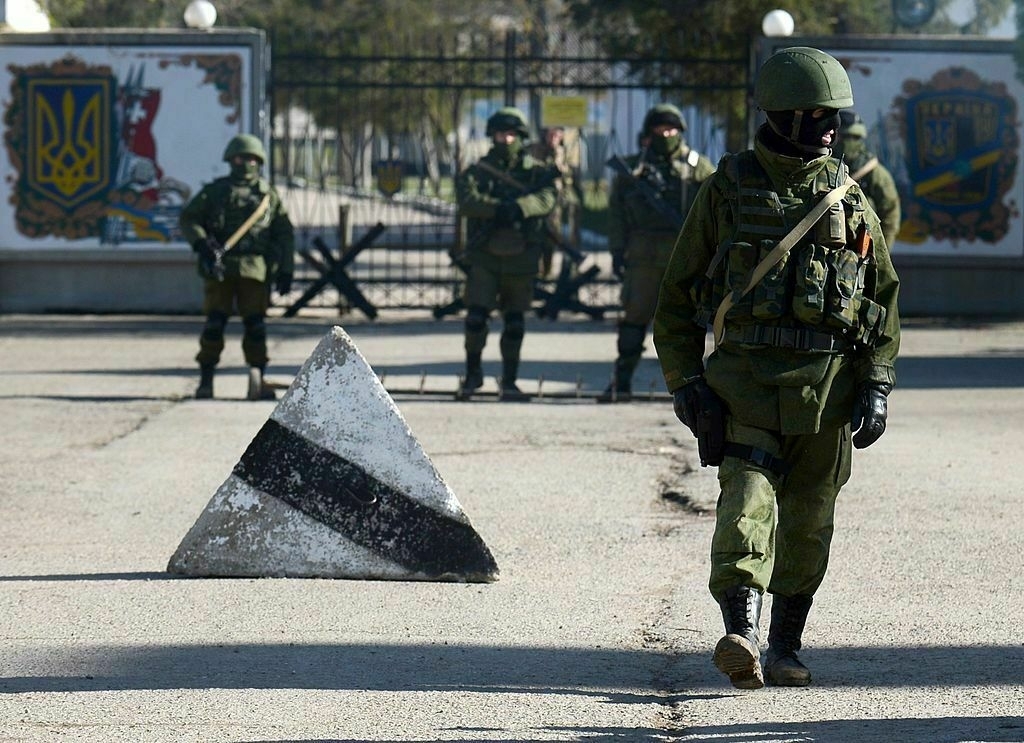
-
'Dangerous and cruel' — Trump's reported Crimea proposal sparks horror among Ukraine's lawmakers
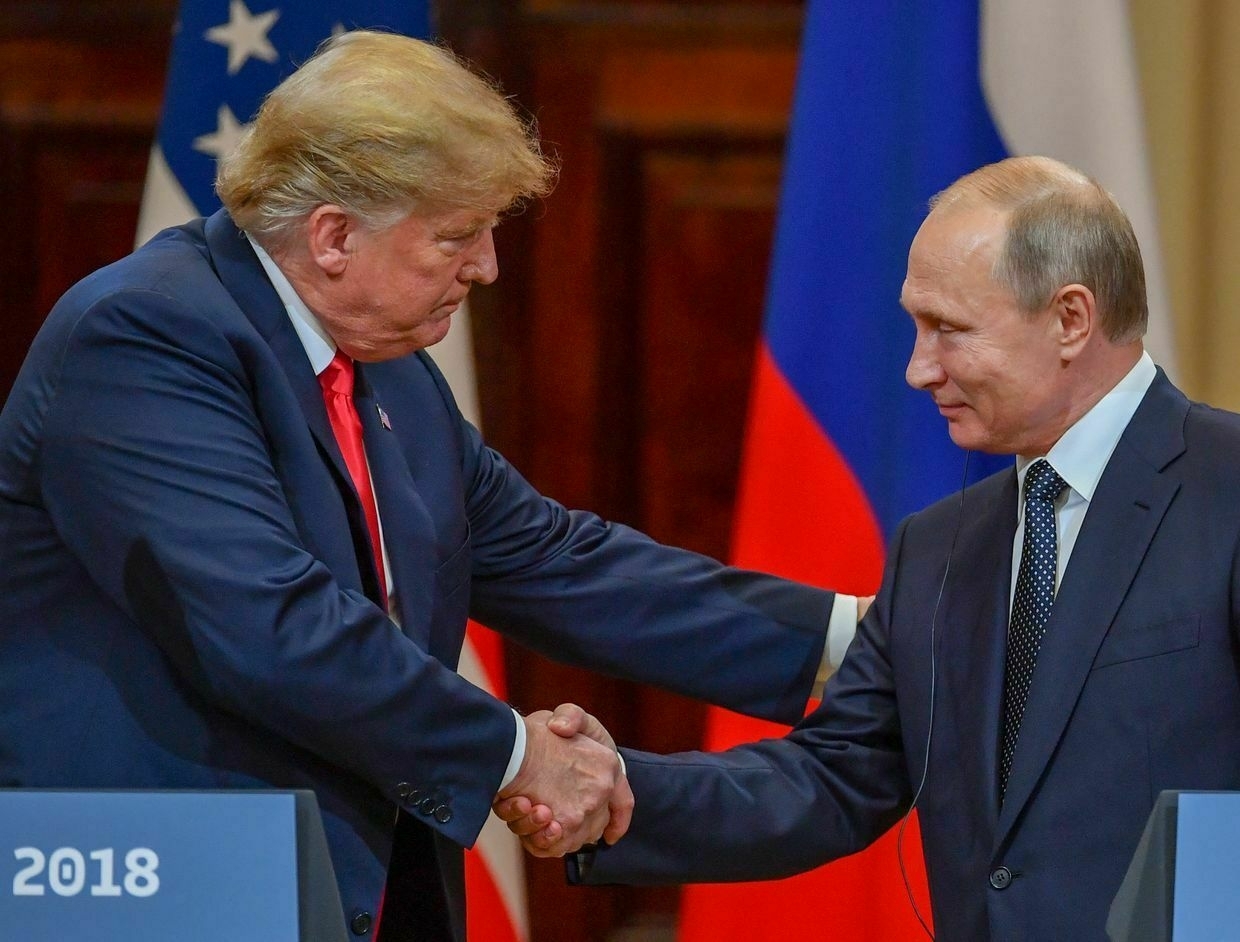
Reports that the U.S. could formally give de jure recognition to Russia’s control over Crimea have landed like a bombshell in Kyiv, with lawmakers unanimous in their opposition to such a move, as well as issuing grave warnings about its potential consequences.
"(The potential recognition of Crimea’s annexation) sets a very dangerous precedent that could plunge the world into numerous wars," Volodymyr Ariev, a lawmaker with the European Solidarity Party, told the Kyiv Independent.
"Ukraine should not side with those intending to violate the fundamental principles established after World War II," he added.
The Trump administration’s final proposal for ending the Russia-Ukraine war included U.S. de jure recognition of Russia’s control over Crimea, along with de facto recognition of its occupation of other Ukrainian territories, Axios reported on April 23, citing sources.
The news supports earlier reporting that the recognition of Russia’s occupation of Crimea and a ban on Ukraine joining NATO are being considered as part of a U.S.-backed proposal to end the war.
Yelyzaveta Yasko, a lawmaker from the Servant of the People party, told the Kyiv Independent that she “really fears” the question of recognizing Crimea being raised during negotiations.
“I don’t like it. I cannot imagine us agreeing to this if it’s real de jure recognition, if I’m honest. If it was de facto then we could, but de jure is too much” she said.
De facto recognition would mean accepting that where Russian troops are in control of Ukrainian territory, at least for the foreseeable future, they remain so.
But it would leave open the option of the land returning to Ukraine, potentially by diplomatic means, something President Volodymyr Zelensky has previously acknowledged could be the only way to regain control of Crimea.
De jure recognition, however, would be final — an admission that the land in question is under Russian control and will remain so indefinitely. The only means of reversing it would be by force.
Russia occupied Ukraine’s Crimean Peninsula in February 2014. In March 2014, the Russian-controlled Crimean parliament voted to hold a “referendum” to join Russia.
The sham voting on annexation was conducted in the absence of any international observers and with armed Russian soldiers present at polling locations.
Ukrainian lawmakers who spoke to the Kyiv Independent said recognizing Russia’s de jure control of the peninsula is next to impossible.
“The Ukrainian Constitution does not provide for the recognition of its territories as being seized by another (country),” Ariev said.
According to the Ukrainian Constitution, Crimea is a legally recognized and inseparable part of Ukraine.
No acts can be passed by the Ukrainian government that contradict the country’s Constitution.
The only way Ukraine could legally recognize Crimea as Russian would be to hold a referendum on the issue and put the vote to the people. While recent polling shows the number of Ukrainians willing to make territorial concessions to end the war has risen, a majority still oppose the idea.
Further, polling has not specified between de facto and de jure control, with de jure likely to be more heavily opposed than de facto.
“No Ukrainian government has a mandate to recognize Crimea as Russian,” Halyna Yanchenko, a lawmaker from the Servant of the People party, told the Kyiv Independent.
“Any peace agreement that includes such a provision would risk sparking unrest within the country. That’s why no Ukrainian leadership would ever agree to it.
“And there is simply no chance such a deal would pass a vote in Ukraine’s Parliament."
Ukraine finds itself in what Zelensky on April 22 described as “a very dangerous moment,” with the U.S. threatening to back out of the peace effort if Kyiv doesn’t agree to its proposal.
Talking to journalists during a visit to India, U.S. Vice President JD Vance said that it is time for Kyiv and Moscow “to either say yes or for the United States to walk away from this process."
All of this risks playing into the hands of the Kremlin, with both Moscow and Washington potentially being able to point to Ukraine’s refusal as the main sticking point of negotiations.
“Ukraine will never agree,” Oleksandr Merezhko, lawmaker and chair of the parliament’s foreign affairs committee, told the Kyiv Independent.
“It will be considered as a provocation with a view (for the U.S.) to exit negotiations and to put the blame on the victim of the aggression."
Ariev said that if the U.S. follows through with the move, it could “open Pandora’s box globally."
“Recognizing territory seized by military means — this would be the first such recognition since World War II — sets a dangerous precedent that could reignite wars in the future, which could potentially reach the scale of World War III,” he said.
“This is extremely dangerous and cruel."
Ukraine insists on ‘immediate, full, and unconditional ceasefire,’ Zelensky saysUkraine insists on an “immediate, full, and unconditional ceasefire,” President Volodymyr Zelensky said on April 23 amid strained peace efforts and intensifying Russian attacks.The Kyiv IndependentMartin Fornusek
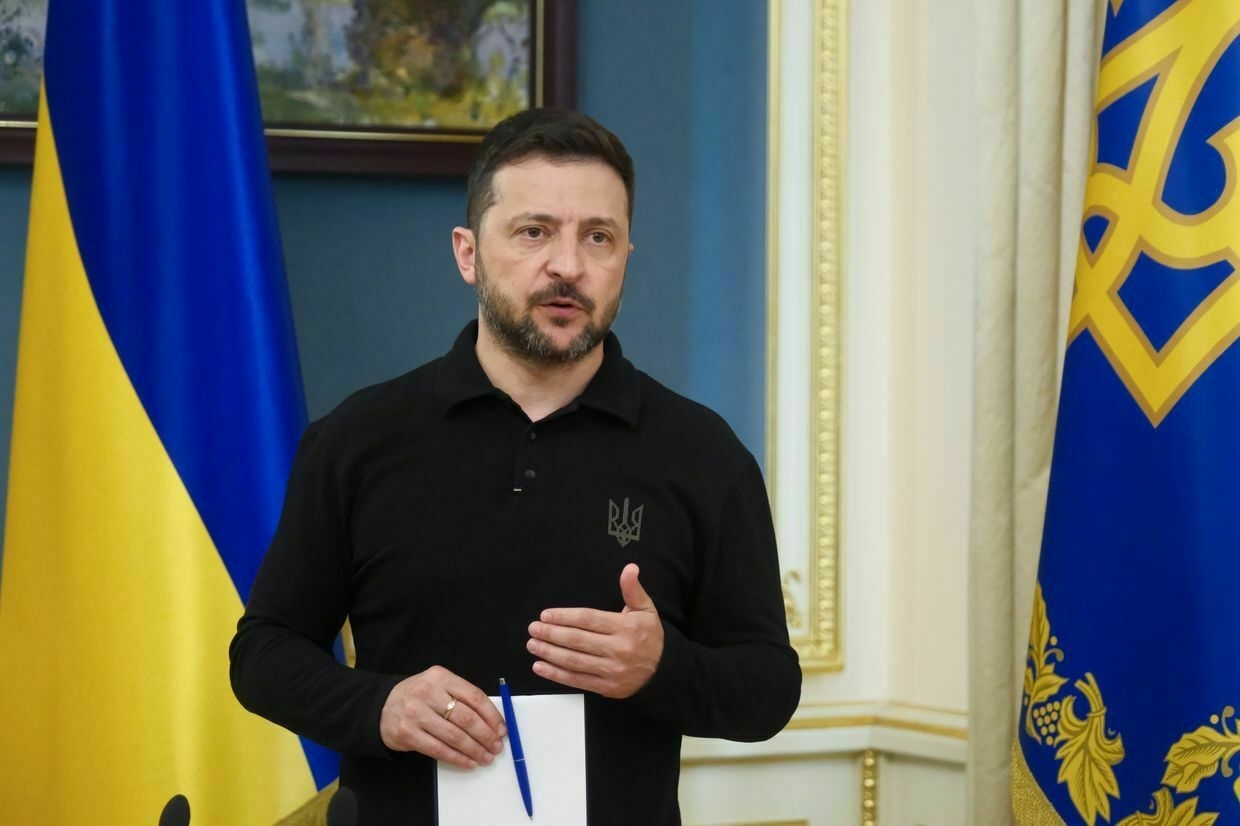
-
'Groundless accusations, political manipulations' — China reacts to Ukraine summoning its envoy
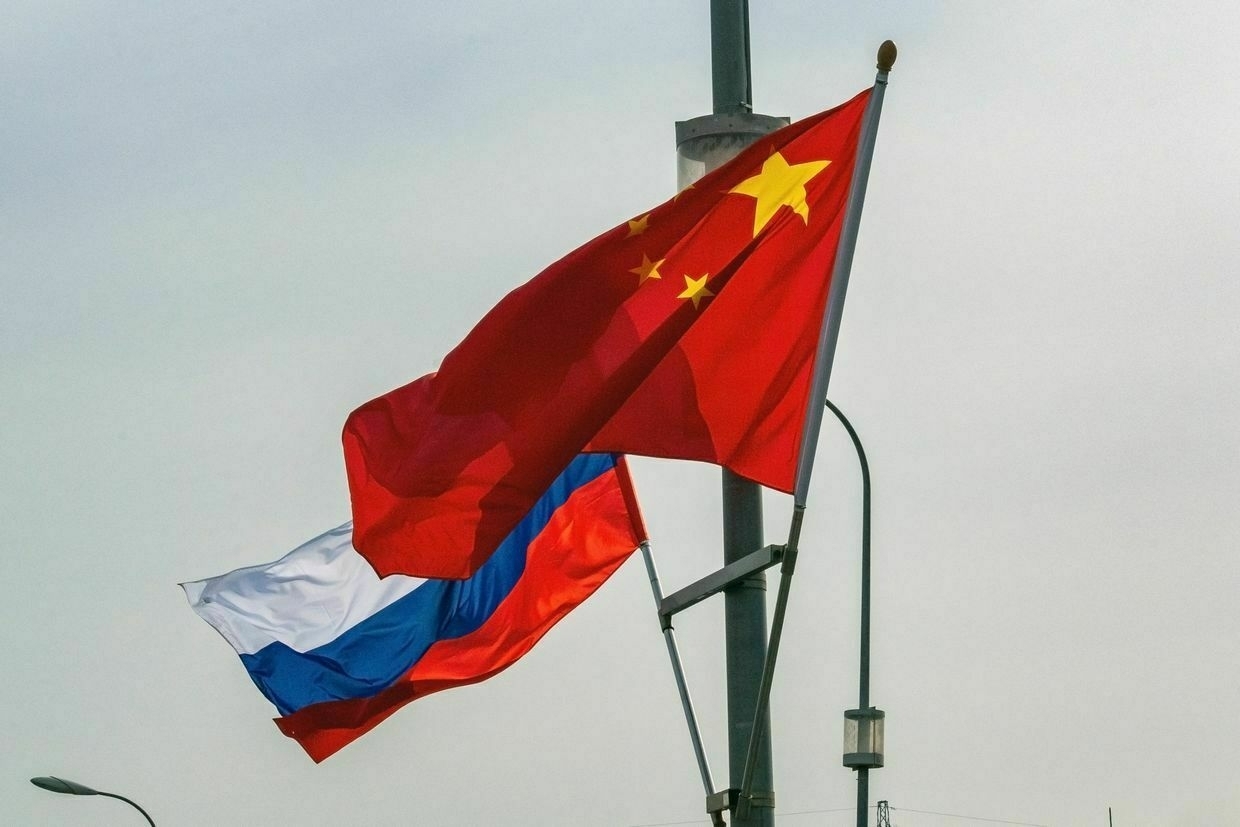
China’s Foreign Ministry on April 23 accused Ukraine of making “groundless” accusations after the Ukrainian Foreign Ministry summoned a Chinese ambassador to present evidence of Chinese involvement in Russia’s war.
A day earlier, Chinese Ambassador to Ukraine Ma Shengkun was invited to the Ukrainian Foreign Ministry to meet with Deputy Foreign Minister Yevhen Perebyinis.
Perebyinis presented the Chinese ambassador with evidence of Chinese citizens' participation in hostilities against Ukraine on Russia’s side and the involvement of Chinese companies in the production of military products in Russia.
The evidence was also passed on to the Chinese side by the Ukrainian security services.
The Chinese Foreign Ministry called Ukraine’s recent statements “groundless” and “political manipulations."
“We have clarified China’s position on the relevant issues. China strongly opposes groundless accusations and political manipulations,” Guo Jiakun, a spokesperson of the Chinese Foreign Ministry, said during a press briefing.
President Volodymyr Zelensky said on April 17 that China is supplying weapons to Russia, marking Kyiv’s first confirmation that Beijing supports Russia’s war effort by direct military aid. Iran and North Korea are two other allies of Moscow that supply Russia with arms.
Though Beijing has long denied supplying arms, multiple reports have suggested otherwise. In summer 2024, Zelensky said China had assured Ukraine it would not deliver weapons to Russia.
While officially claiming neutrality, Beijing has deepened economic ties with Moscow, supported Russia against Western sanctions, and emerged as a top supplier of dual-use goods that feed the Russian defense sector.
Earlier this month, Ukrainian forces captured two Chinese nationals fighting for Russia in Donetsk Oblast. Zelensky later said that “several hundred” Chinese nationals were fighting on Russia’s side.
China has denied any direct involvement in the war and claimed it has urged its citizens to avoid armed conflicts.
Trump’s reported ‘final’ peace plan includes accepting Russian occupation, few benefits for UkraineThe U.S. reportedly presented its peace proposal last week during a meeting with Ukrainian officials in Paris.The Kyiv IndependentKateryna Hodunova
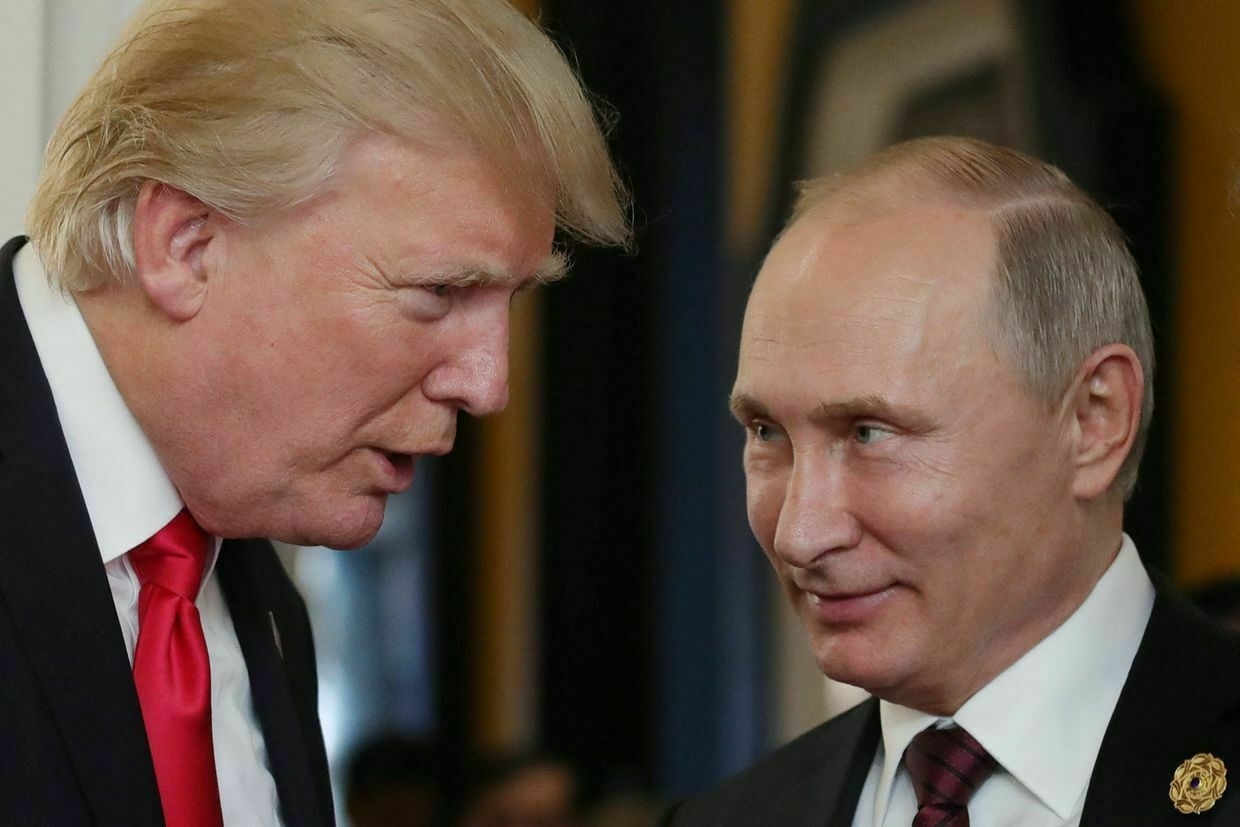
-
‘There are not enough’ — Putin admits gaps in Russian weapons manufacturing
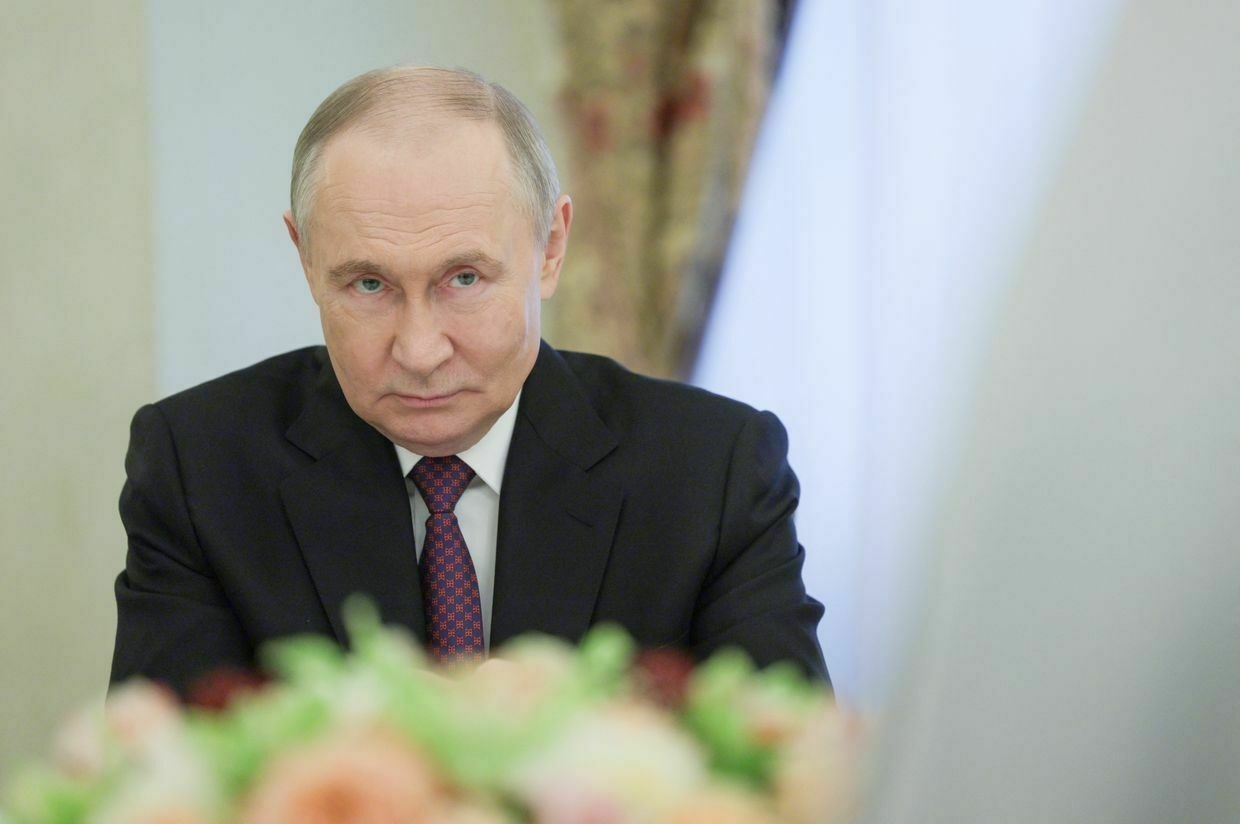
Despite significantly ramping up weapons production last year, Russia’s armed forces are still missing key military equipment, Russian President Vladimir Putin said at a meeting of the state Military-Industrial Commission on April 23, Kremlin state media reported.
The Russian army received in 2024 over 4,000 armoured vehicles, 180 warplanes and helicopters, over 1.5 million drones of various types, Putin claimed, adding that approximately 4,00 FPV drones are sent to the battlefield daily.
“Last year, almost all defense companies fulfilled the tasks of the state defense order, qualitatively and on time, and some types of weapons were (produced) ahead of schedule,” Putin said.
Despite this, he said there are still gaps in Russian weapons manufacturing.
“I know very well that these means of defeat (drones) are still lacking. There are not enough,” he said.
“I am sure that all plans to increase the production of […] drones will certainly be fulfilled. They are very much awaited on the line of contact. In fact, this is currently one of the major factors in combat success,” he added.
Putin said Russia was pushing forward to gain technological advantages, claiming the Kremlin has modernized more than 400 companies in recent years.
“Global trends in the development of military technologies should be taken into account to forecast and understand potential armed conflicts, as the future is rapidly approaching,” he said.
He added that the Kremlin’s experience in the “special military operation” is being studied “without any exaggeration by all armies of the world, leaders of the global arms industry, and high-tech companies."
“And we need to be one step ahead, as we have been able to do recently and, I am sure, will be able to do in the future."
Both Ukraine and Russia have increasingly relied on drone warfare, using aerial, naval, and ground-based drones for reconnaissance and combat missions.
Since the start of the full-scale invasion, Ukraine and Russia have been developing and deploying technological innovations and cutting-edge unmanned systems.
Russia is using drones not only on the frontline but also to target civilians on a daily basis.
Trump’s reported ‘final’ peace plan includes accepting Russian occupation, few benefits for UkraineThe U.S. reportedly presented its peace proposal last week during a meeting with Ukrainian officials in Paris.The Kyiv IndependentKateryna Hodunova
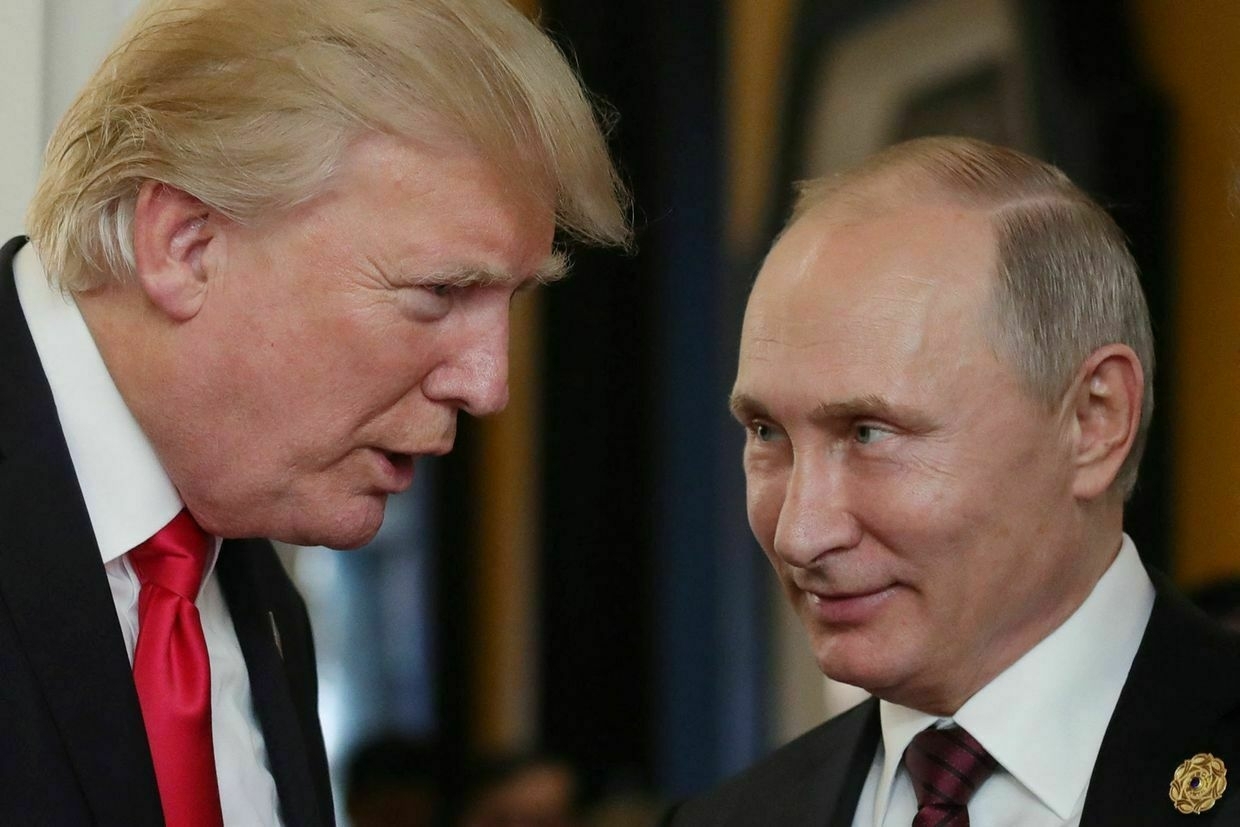
-
Ukraine insists on 'immediate, full, and unconditional ceasefire,' Zelensky says
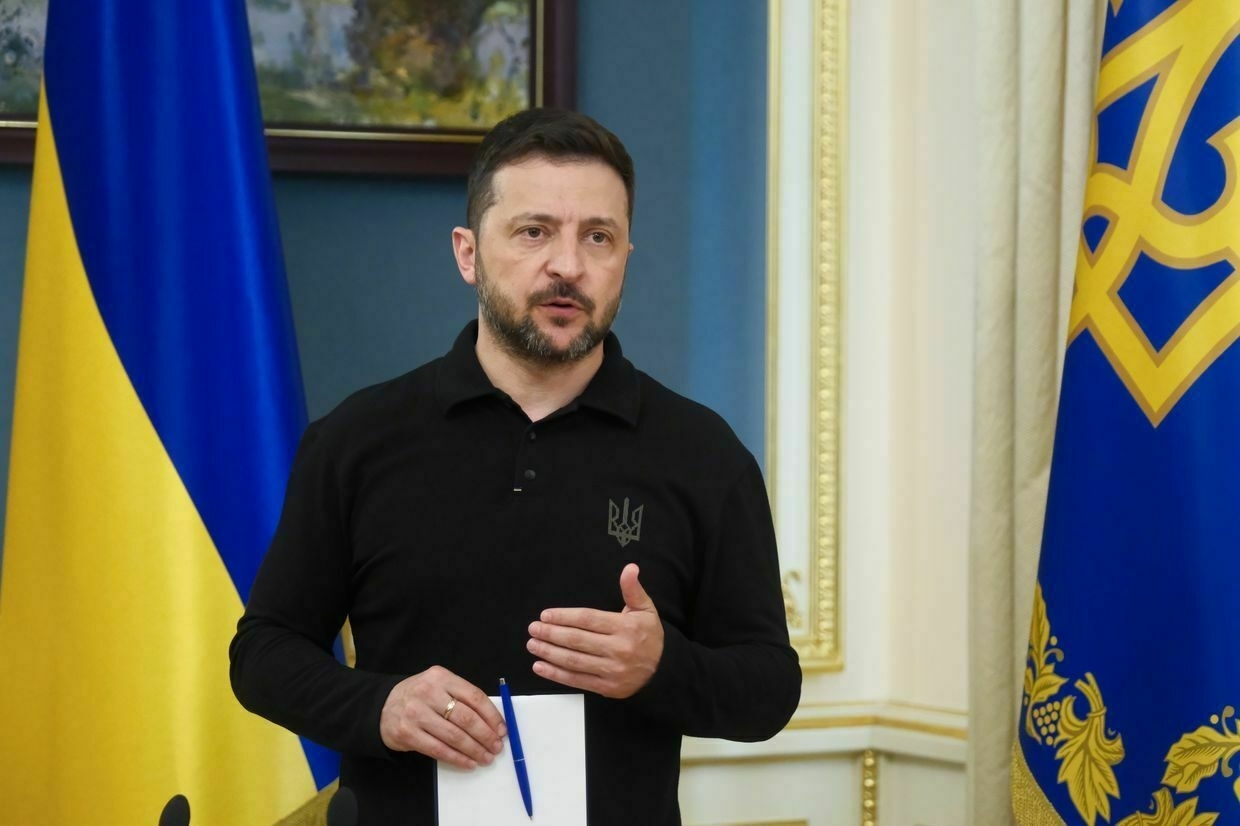
Ukraine insists on an “immediate, full, and unconditional ceasefire,” President Volodymyr Zelensky said on April 23 amid strained peace efforts and intensifying Russian attacks.
“That was the proposal put forward by the United States on March 11 of this year — and it was absolutely reasonable,” Zelensky said, referring to a 30-day ceasefire proposal that Kyiv signed off on during talks with the U.S. in Jeddah.
“This is absolutely possible – but only if Russia agrees and stops the killing."
The comments come after a planned ministerial meeting between Ukraine, the U.S., the U.K., France, and Germany was downgraded after U.S. Secretary of State Marco Rubio skipped the event, casting doubt on the peace efforts.
Rubio’s move followed Zelensky ruling out the recognition of Russia’s annexation of Crimea as part of a potential deal. U.S. President Donald Trump’s peace plan reportedly includes the U.S. de jure recognizing Russian control over the peninsula.
The Ukrainian delegation in London, including Presidential Office head Andriy Yermak, Foreign Minister Andrii Sybiha, and Defense Minister Rustem Umerov, is now instead meeting European national security advisors, as well as U.S. officials.
“Today, we will discuss ways to achieve a full and unconditional ceasefire as the first step toward a comprehensive settlement and the achievement of a just and lasting peace,” Yermak said.
Zelensky underscored that while Ukraine calls for a ceasefire, Russia continues to launch deadly attacks on Ukrainian cities, inflicting heavy civilian casualties. Marhanets, Zaporizhzhia, Kupiansk, and Kherson were among those targeted by Russian forces in recent days.
The president also noted that hostilities decreased during the Easter holidays and repeated his calls for extending the truce for 30 days. Ukrainian officials accused Russia of violating its Easter ceasefire almost 3,000 times, though they acknowledged that the intensity of hostilities decreased in some aspects.
“Ukraine has repeatedly said that it does not rule out any format that can lead to a ceasefire and, ultimately, real peace,” Zelensky said.
“Stopping the killing is task number one. I am grateful to everyone who is focused on this goal and helps us move toward ending the war."
Vance expects territorial concessions from Russia, Ukraine in potential peace dealU.S. Vice President JD Vance said on April 23 that the U.S. presented a “very explicit proposal” to Russia and Ukraine on a peace deal, repeating warnings Washington might drop its peace effort if the belligerent sides refuse.The Kyiv IndependentMartin Fornusek
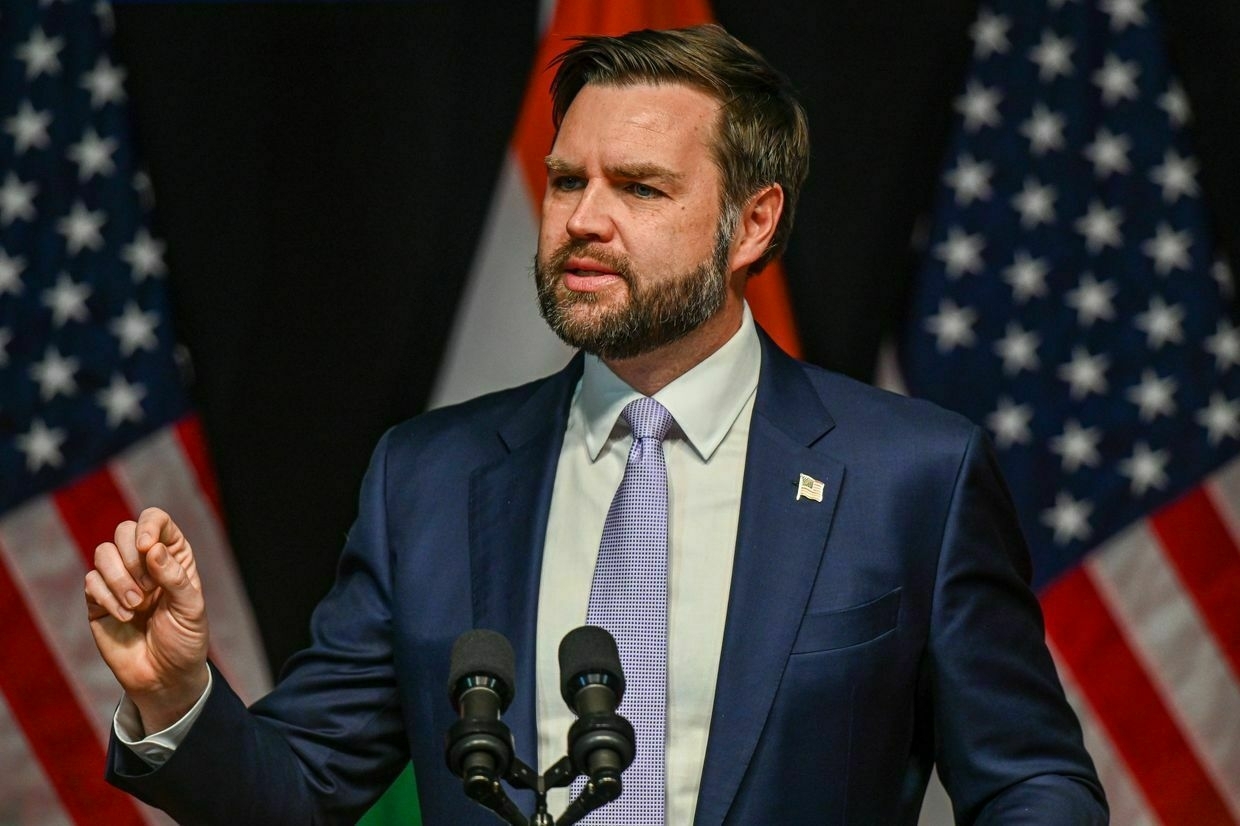
-
EU considers ways to ban new Russian gas contracts, Reuters reports
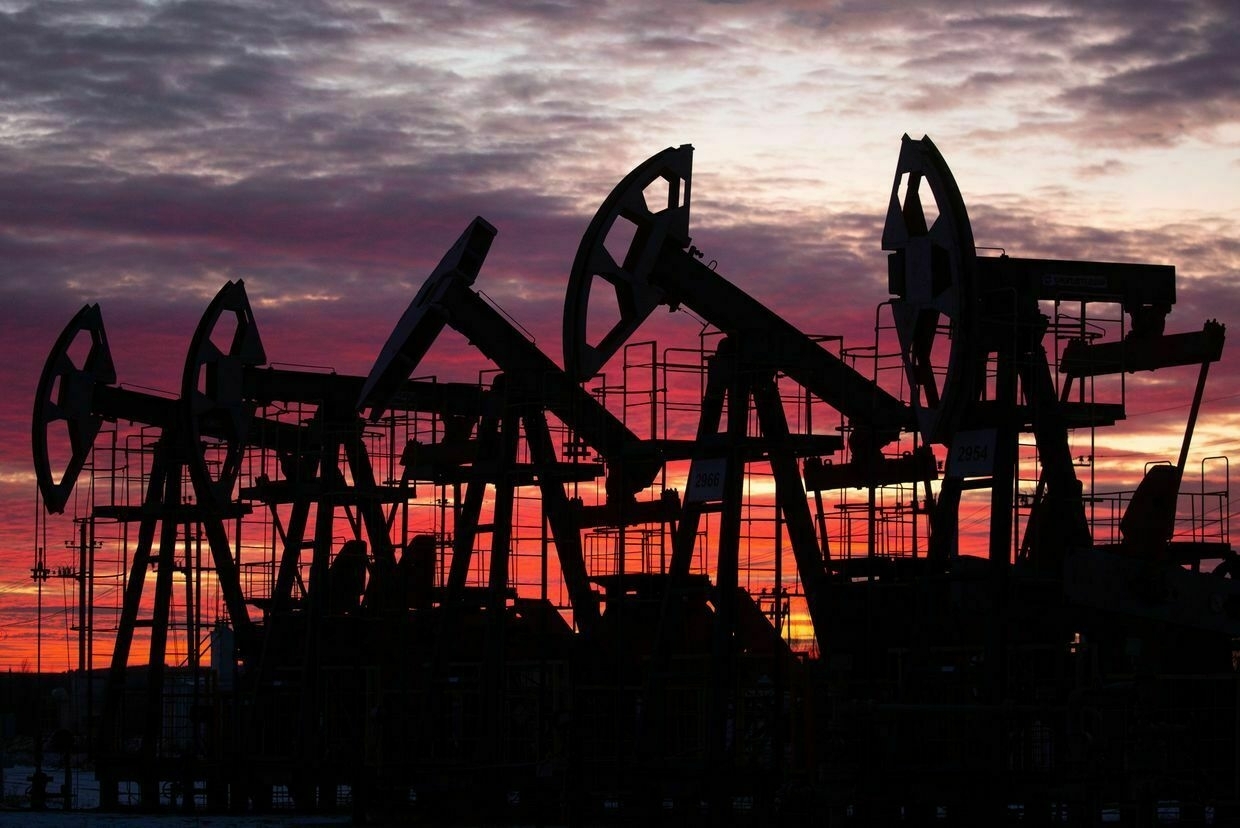
The European Commission is exploring options to legally prohibit EU companies from signing new contracts for the supply of Russian gas, Reuters reported on April 22, citing an undisclosed senior EU official.
The EU is also considering ways to allow companies located in member states to terminate existing gas supply contracts with Russia without penalties, the official told Reuters.
Following Russia’s full-scale invasion of Ukraine in 2022, Europe began to wean itself off Russian fossil fuels to stifle Russia’s revenue that finances its war chest.
The European bloc plans to completely phase out Russian fossil fuels by 2027, and the European Commission is expected to provide a plan by May 6 – a deadline postponed from March amid uncertainty over U.S. President Donald Trump’s tariff policies.
The ban on new contracts aims to reduce European companies' spot purchases of Russian liquefied natural gas (LNG). Although Russian pipeline gas supplies have declined sharply since the all-out war, the EU increased its imports of Russian LNG last year.
The EU’s imports of Russian LNG in 2024 reached a record level, despite the bloc’s efforts to reduce its gas dependence after Russia’s full-scale war against Ukraine, according to the Financial Times.
Europe must act on Russian LNG before Trump makes it impossibleEurope’s window to ban Russian liquefied natural gas (LNG) is closing faster than we think. As a second Trump administration takes shape, Europe’s opportunity to impose new, meaningful measures on Russian fossil fuels is rapidly diminishing. U.S. President Donald Trump’s plan to end the war allegedly includesThe Kyiv IndependentSvitlana Romanko
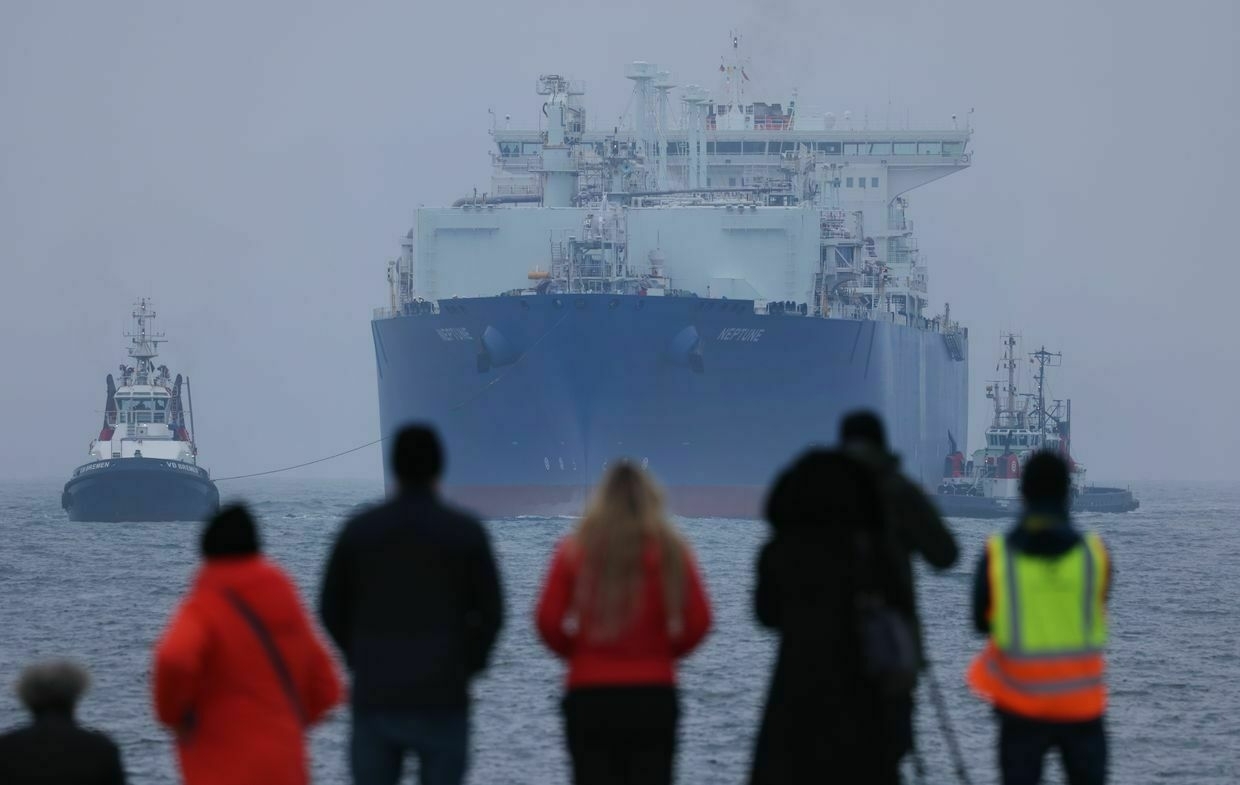
-
Downgraded peace talks between US, Ukraine, and European allies begin in London
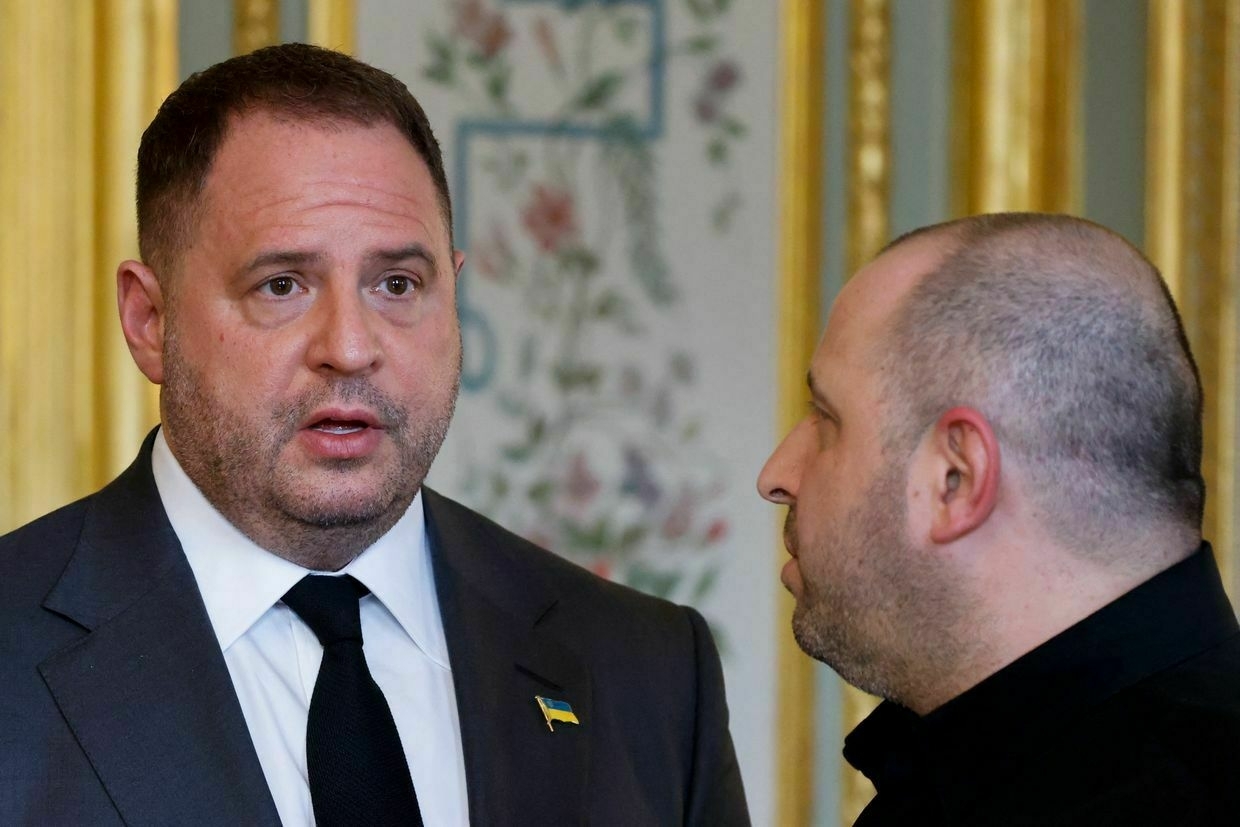
Editor’s note: This is a developing story and is being updated.
U.S., U.K., German, French, and Ukrainian officials began their meeting on April 23 to discuss a path toward ending the Russia-Ukraine war, Sky News reported.
The meeting was to be held at a ministerial level, but was downgraded after U.S. Secretary of State Marco Rubio canceled his participation.
Rubio’s move followed President Volodymyr Zelensky ruling out the recognition of Russia’s annexation of Crimea as part of a potential deal. U.S. President Donald Trump’s peace plan reportedly includes the U.S. de jure recognizing Russian control over the peninsula.
The Ukrainian delegation, including Presidential Office head Andriy Yermak, Foreign Minister Andrii Sybiha, and Defense Minister Rustem Umerov, is now instead meeting European national security advisors, as well as U.S. officials.
The U.S. leadership was angered by Ukraine’s refusal to cede territory to Russia and by its insistence on a full ceasefire as the first step toward peace, leading to the disruption of the talks, an official source told the Washington Post.
“Despite everything, we continue working for peace,” Yermak said upon arrival in London.
“Today, we will discuss ways to achieve a full and unconditional ceasefire as the first step toward a comprehensive settlement and the achievement of a just and lasting peace."
Ukraine’s Deputy Prime Minister and Economy Minister Yuliia Svyrydenko said that Kyiv is “ready to negotiate, but not surrender,” stressing the need for security guarantees and rejecting recognition of Russia’s annexation of Ukraine’s territory.
Trump has said his country will abandon the peace efforts in the coming days unless progress is made. His envoy, Steve Witkoff, is expected to visit Russia for a high-level meeting this week, even though he skipped the talks with European and Ukrainian officials.
Trump’s reported ‘final’ peace plan includes accepting Russian occupation, few benefits for UkraineThe U.S. reportedly presented its peace proposal last week during a meeting with Ukrainian officials in Paris.The Kyiv IndependentKateryna Hodunova
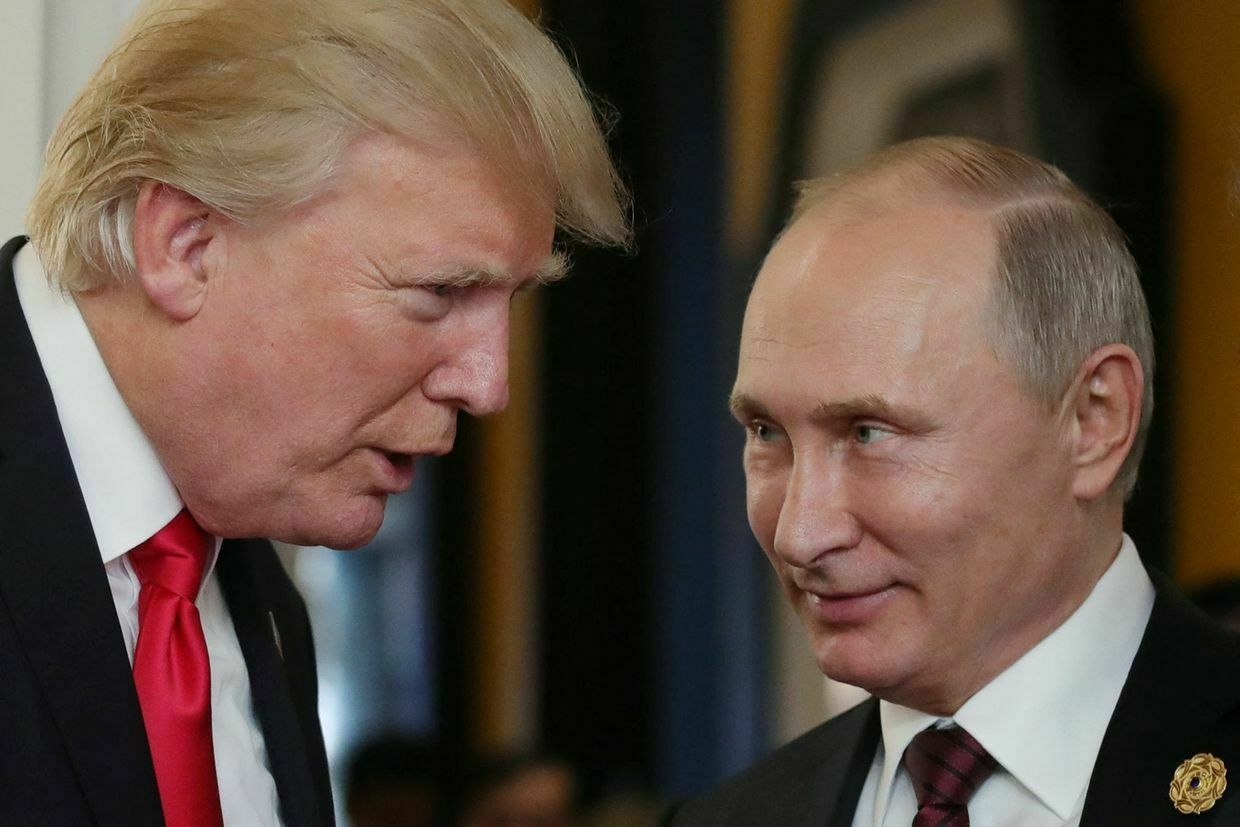
-
'Ukraine ready to negotiate, but not surrender,' Deputy PM says amid strained peace efforts
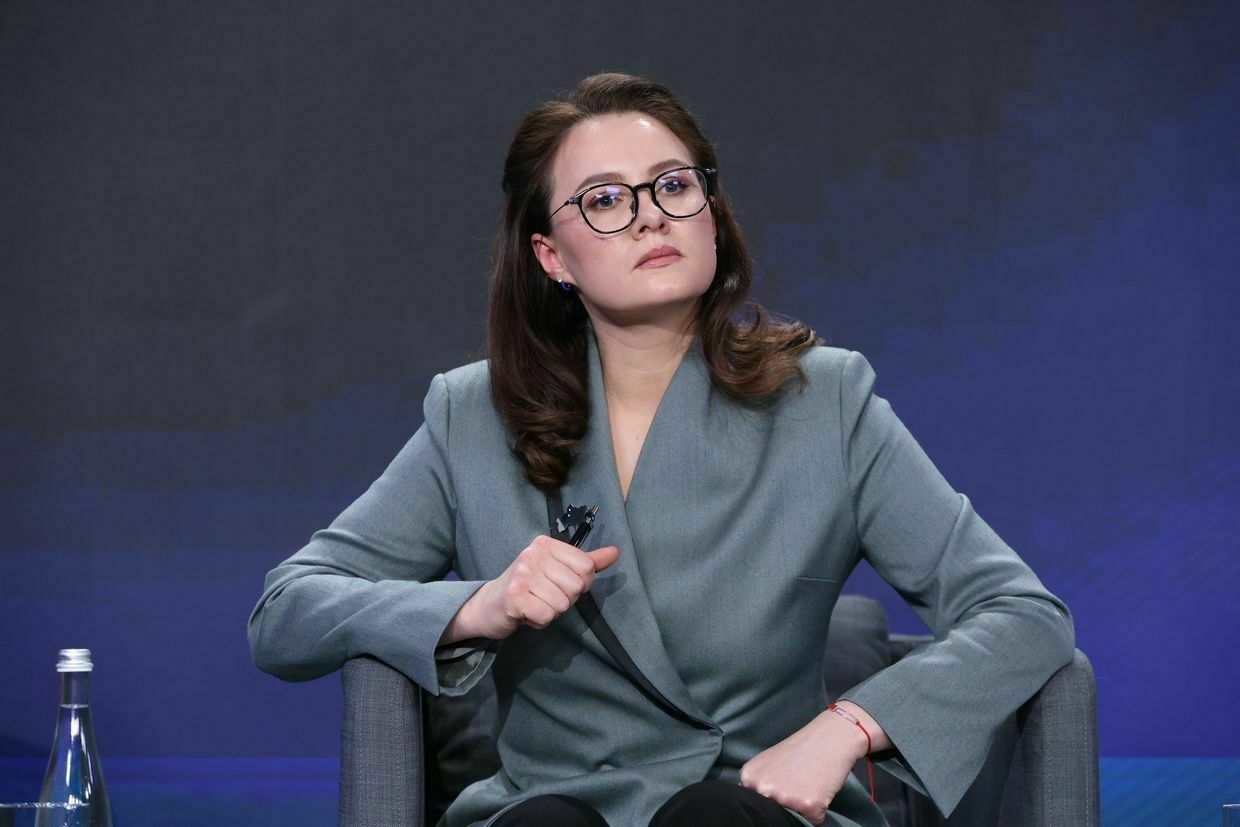
Ukraine will not accept a peace agreement that would give Russia a chance to regroup for further attacks, and sees a full ceasefire as “the necessary first step,” Deputy Prime Minister Yuliia Svyrydenko said on April 23.
“As Ukraine’s delegation meets with partners in London today, we reaffirm a principled position: Ukraine is ready to negotiate — but not to surrender,” Svyrydenko said.
The comments come as Ukraine’s Foreign Minister Andrii Sybiha, Defense Minister Rustem Umerov, and Presidential Office chief Andriy Sybiha visit London to discuss a ceasefire plan with U.S. and European officials.
The meeting was meant to be held at a ministerial level and address a broader peace plan, but was downgraded after U.S. Secretary of State Marco Rubio — and subsequently other top diplomats — canceled participation.
Rubio’s move followed President Volodymyr Zelensky ruling out the recognition of the Russian annexation of Crimea as part of the deal. U.S. President Donald Trump’s peace plan reportedly includes the U.S. de jure recognizing Russian control over the peninsula and de facto recognizing Russian occupation of parts of the Donetsk, Luhansk, Kherson, and Zaporizhzhia oblasts.
The plan, first presented to Ukraine during talks in Paris on April 17, is also said to include a ban on Kyiv’s accession to NATO and only vague assurances for the invaded country.
“Our people will not accept a frozen conflict disguised as peace. We will never recognize the occupation of Crimea,” Svyrydenko said.
“And if NATO membership is not granted, Ukraine will require binding security guarantees—ones strong enough to deter future aggression, and clear enough to ensure lasting peace."
Trump has said his country will abandon the peace efforts in the coming days unless progress is made. He has not offered any security guarantees to Ukraine, though the U.S. does not oppose a potential European peacekeeping mission to monitor a potential ceasefire.
Trump’s reported ‘final’ peace plan includes accepting Russian occupation, few benefits for UkraineThe U.S. reportedly presented its peace proposal last week during a meeting with Ukrainian officials in Paris.The Kyiv IndependentKateryna Hodunova
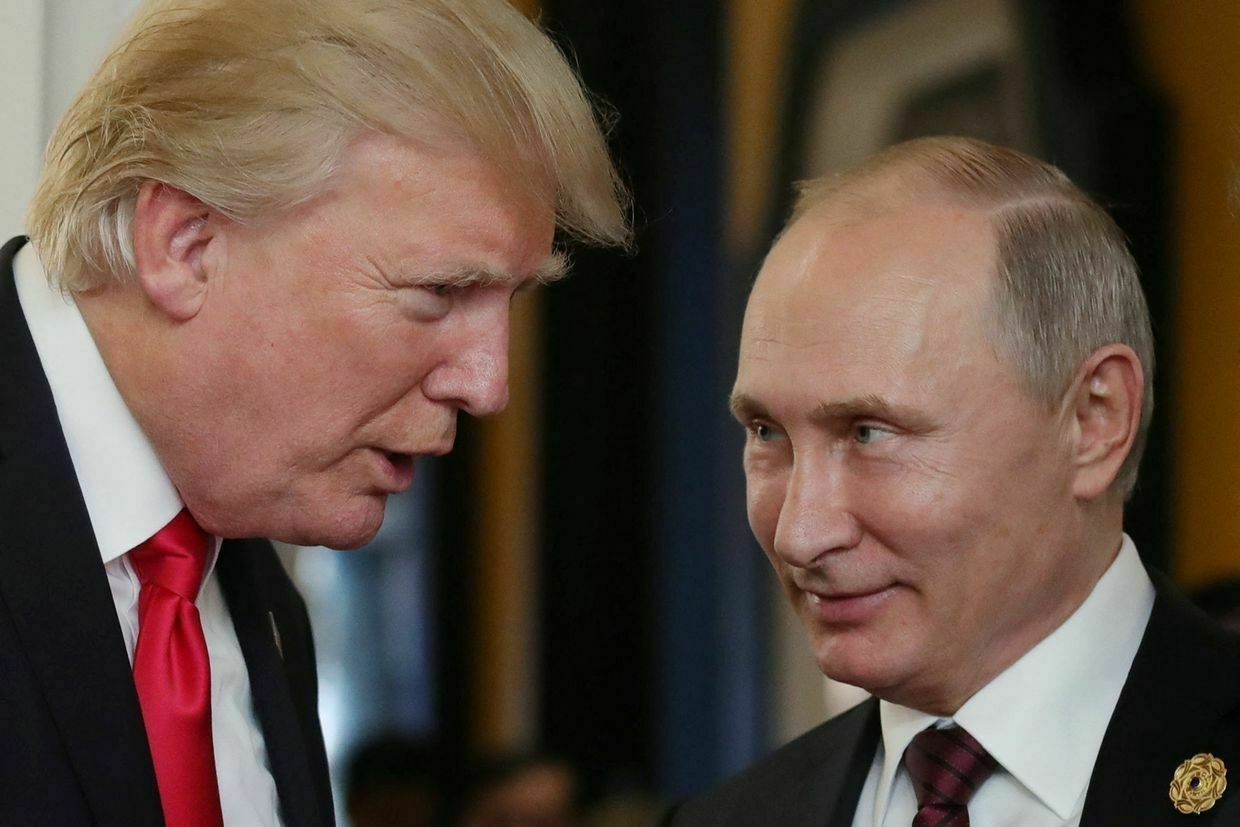
-
London talks suspended over 'lack of consensus on some issues,' Kremlin claims
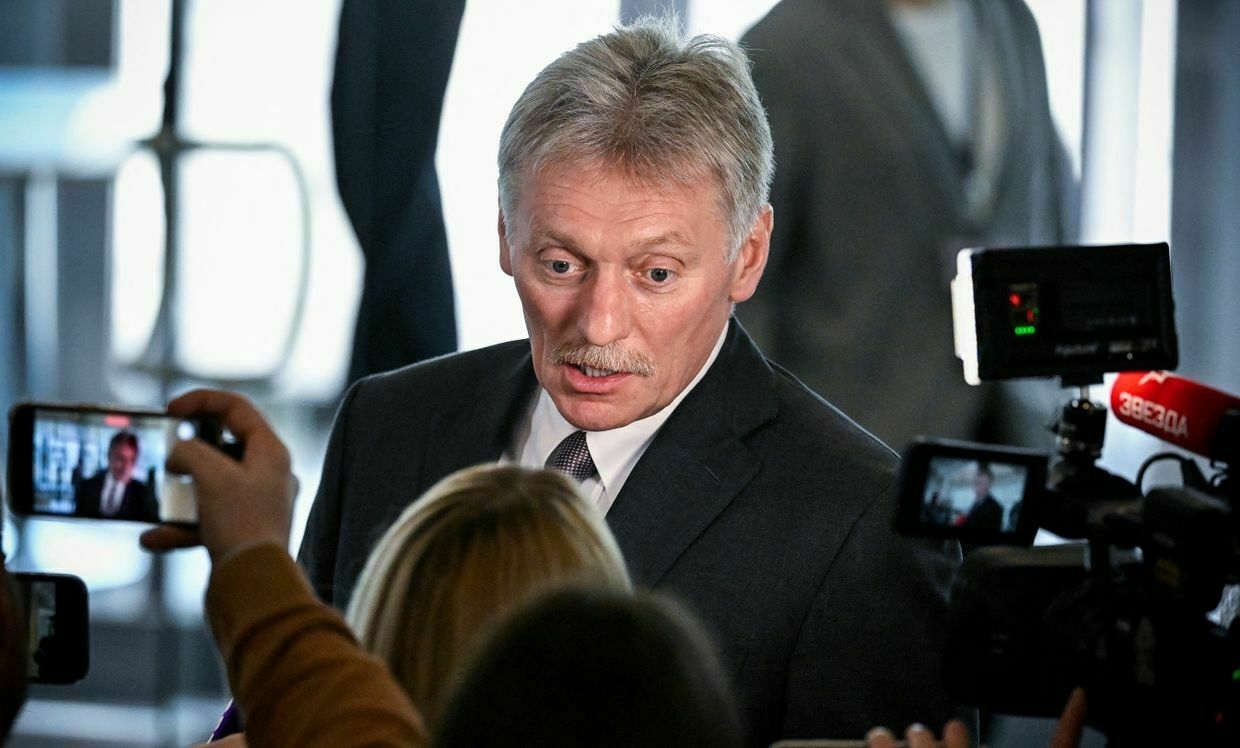
A ministerial meeting of U.S., European, and Ukrainian officials was postponed due to a “lack of consensus on some issues, Kremlin spokesperson Dmitry Peskov said on April 23 after U.S. Secretary of State Marco Rubio and others decided to skip the event.
The U.K.’s capital was to host a meeting between the chief diplomats of the U.K., France, Ukraine, and Germany, as well as Rubio and Special Envoy Steve Witkoff.
The parties were expected to agree on a common position on a peace deal, which Witkoff would then present to Russia during his visit later this week. The meeting was downgraded after most participants decided to skip it amid disagreements on key points of the reported U.S. peace plan.
The final version of U.S. President Donald Trump’s peace plan, which he wants Russia and Ukraine to sign off on, requires significant concessions from the latter.
According to the peace proposal, the U.S. would de jure recognize Russia’s control over occupied Crimea and de facto accept Russia’s partial occupation of Ukrainian territories in Luhansk, Donetsk, Kherson, and Zaporizhzhia oblasts. Kyiv must also give up its aspirations to join NATO.
“As far as we know, the two sides still haven’t come closer on some issues,” Peskov said at a press conference. The spokesperson added that there are “many nuances around the negotiations” and in areas “where the positions need to be brought closer."
Russia continues to engage with the U.S. on a possible settlement of the war in Ukraine, but not with Kyiv and Europe, Peskov said. Witkoff is still expected to visit Russia despite the breakdown of the London summit.
In light of the controversy over the U.S. peace initiative, the meeting in London is being held at a lower level. A Ukrainian delegation has already arrived, with Foreign Minister Andrii Sybiha and Defense Minister Rustem Umerov meeting their U.K. counterparts, David Lammy and John Healey.
The U.S. delegation at the meeting will be led by Special Envoy for Ukraine Keith Kellogg. Germany will be represented by National Security Advisor Jens Plotner, and France by presidential advisor Emmanuel Bonne and senior diplomat Frederic Mondoloni.
Trump hopes to ‘end war’ this week. Here’s what you need to knowU.S. President Donald Trump declared that Russia and Ukraine could reach a war-ending deal “this week,” as his team threatens that Washington could ditch the peace talks efforts if no step is taken in the near future. “Both will then start to do big business with the United StatesThe Kyiv IndependentAsami Terajima
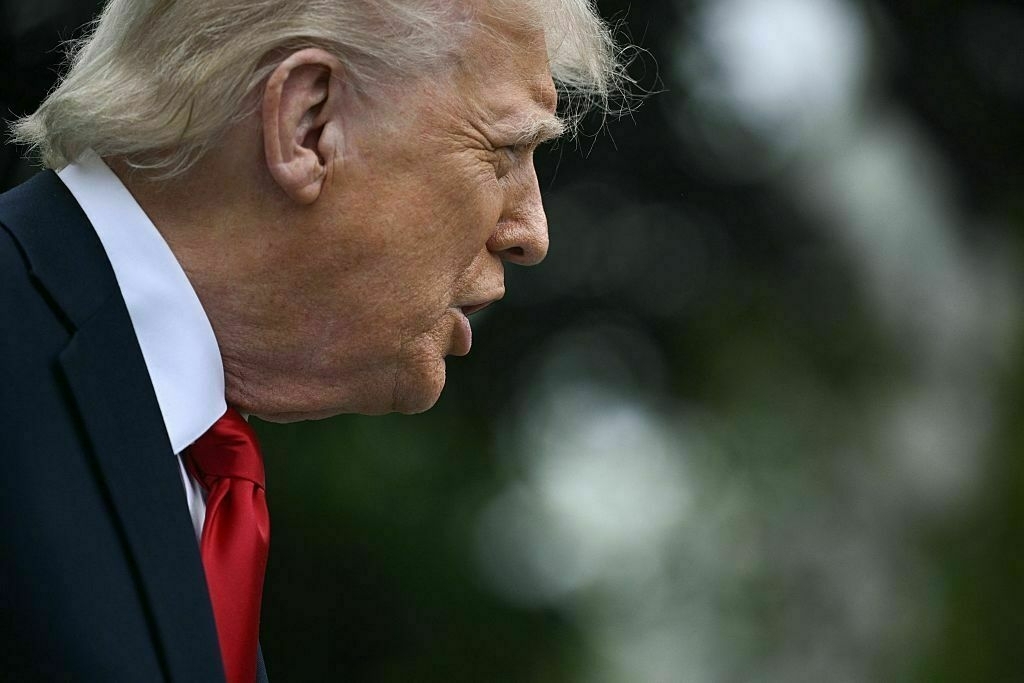
Tracking information about the Russian War against Ukraine

